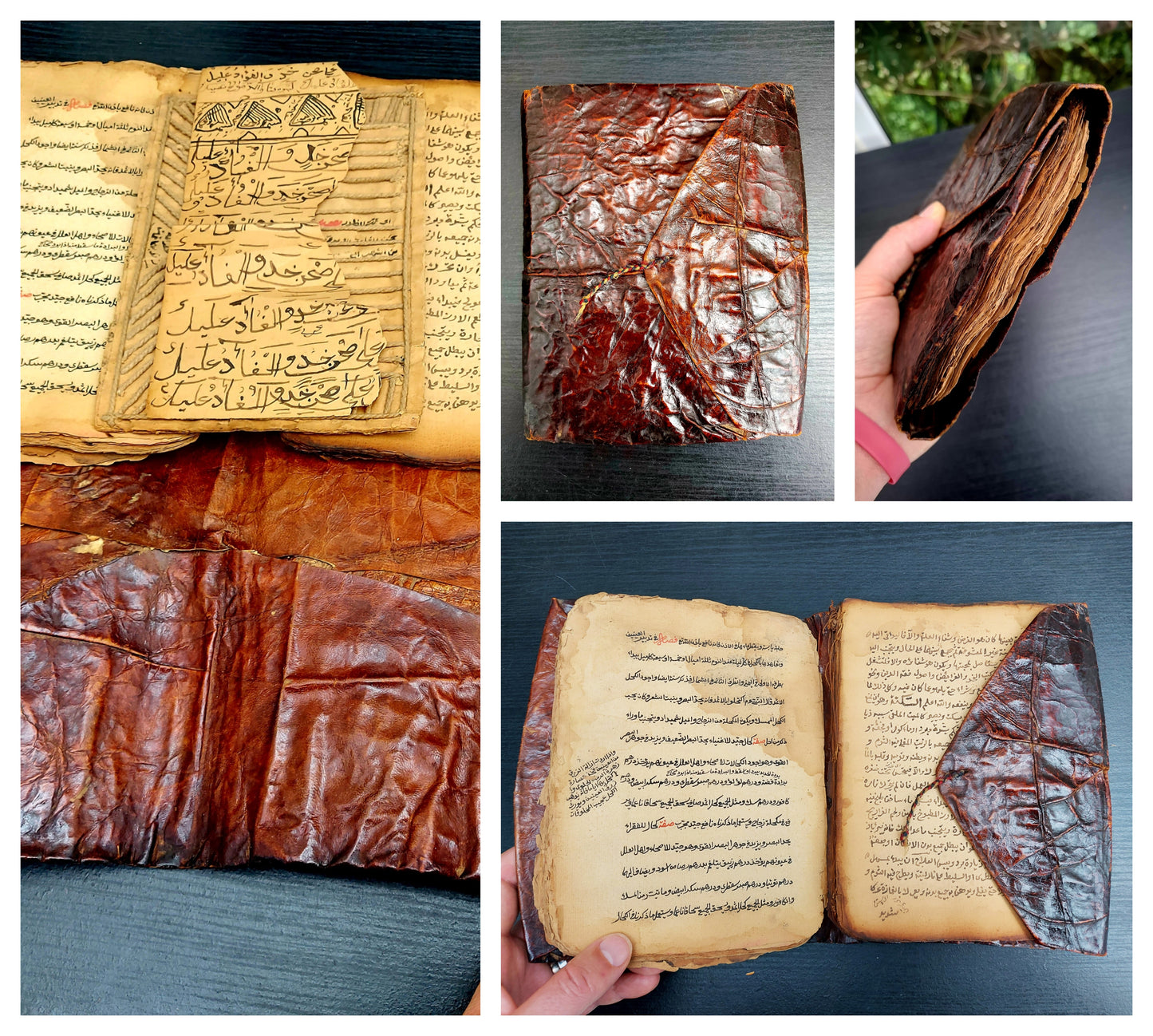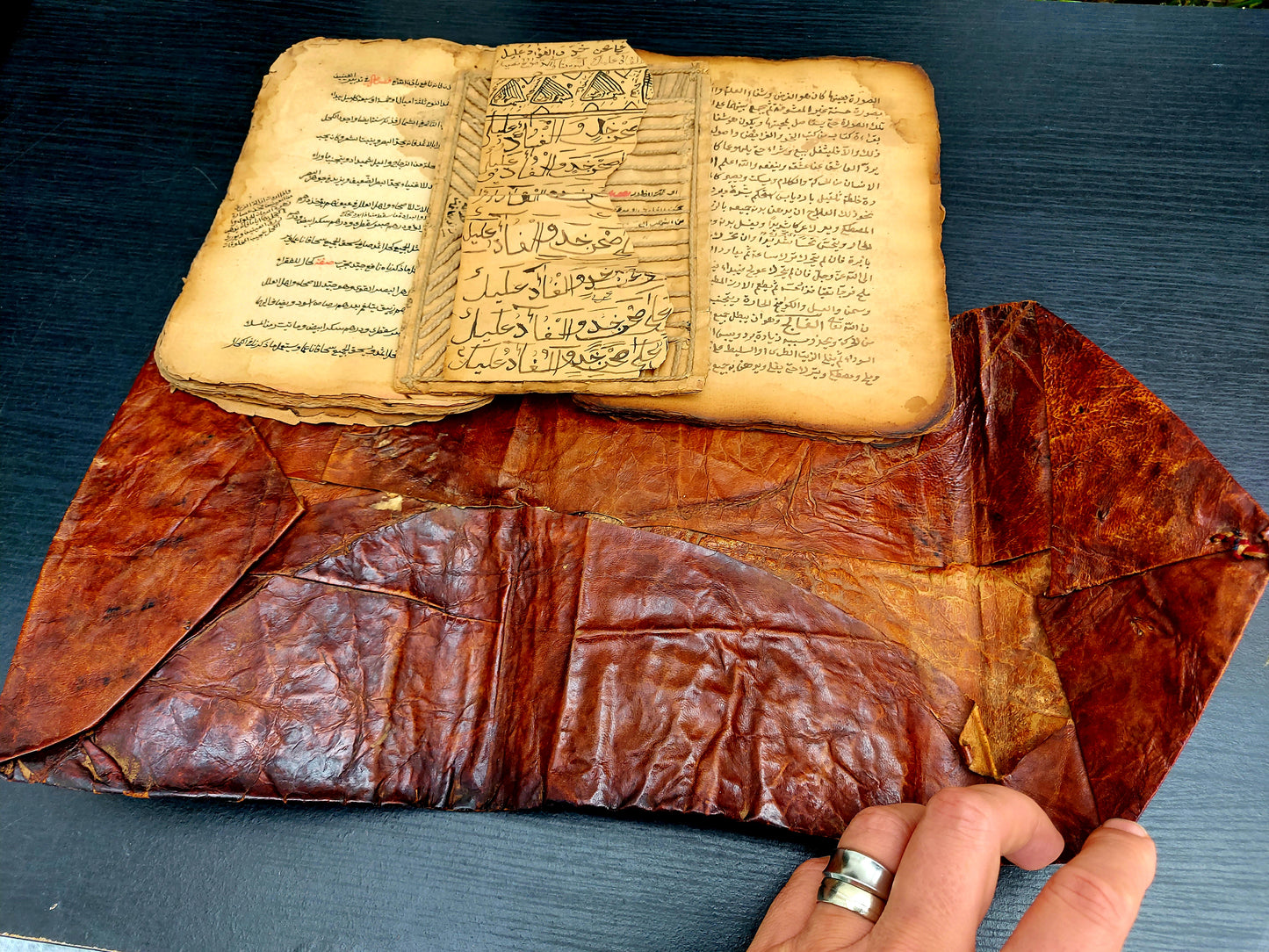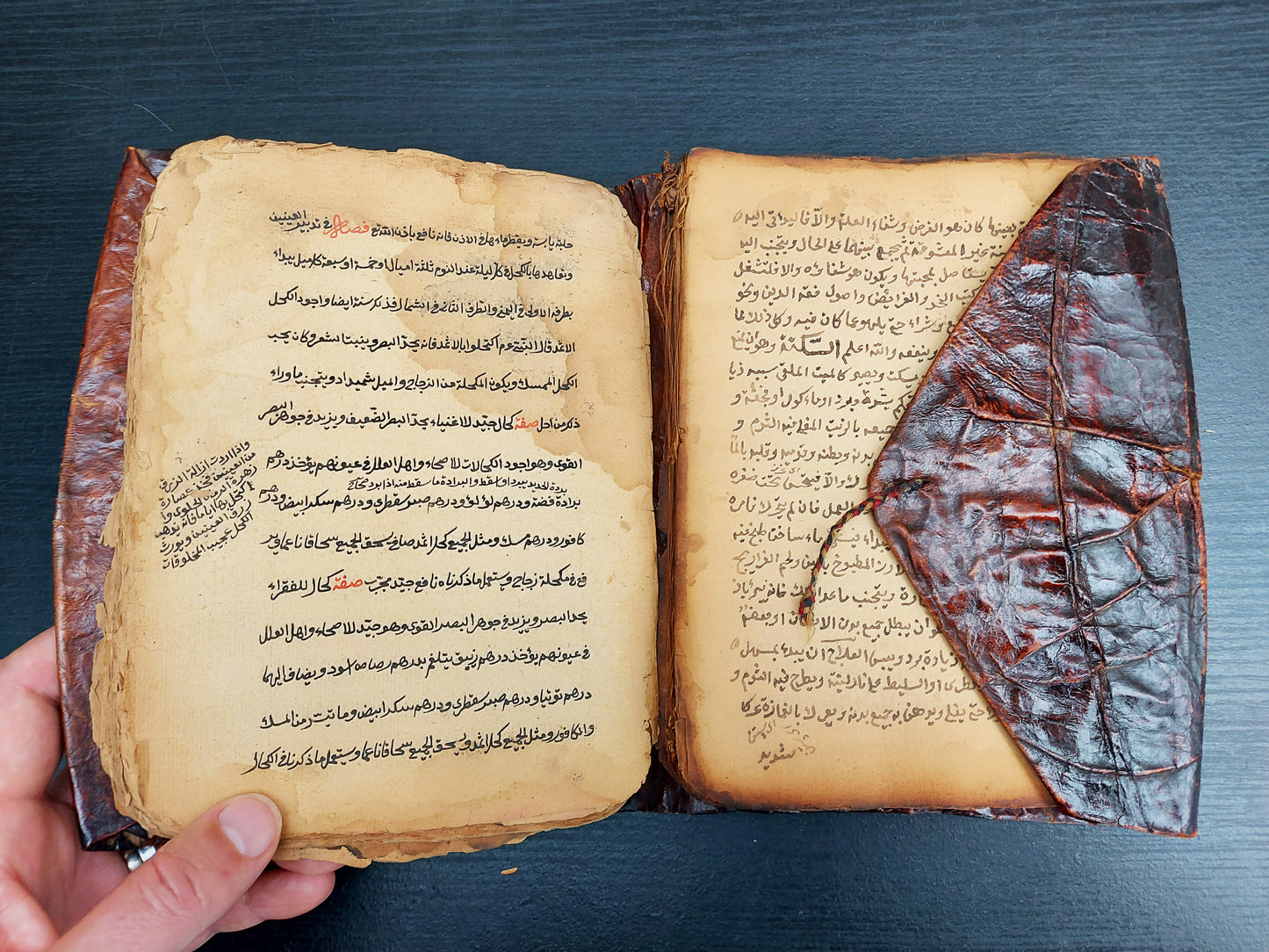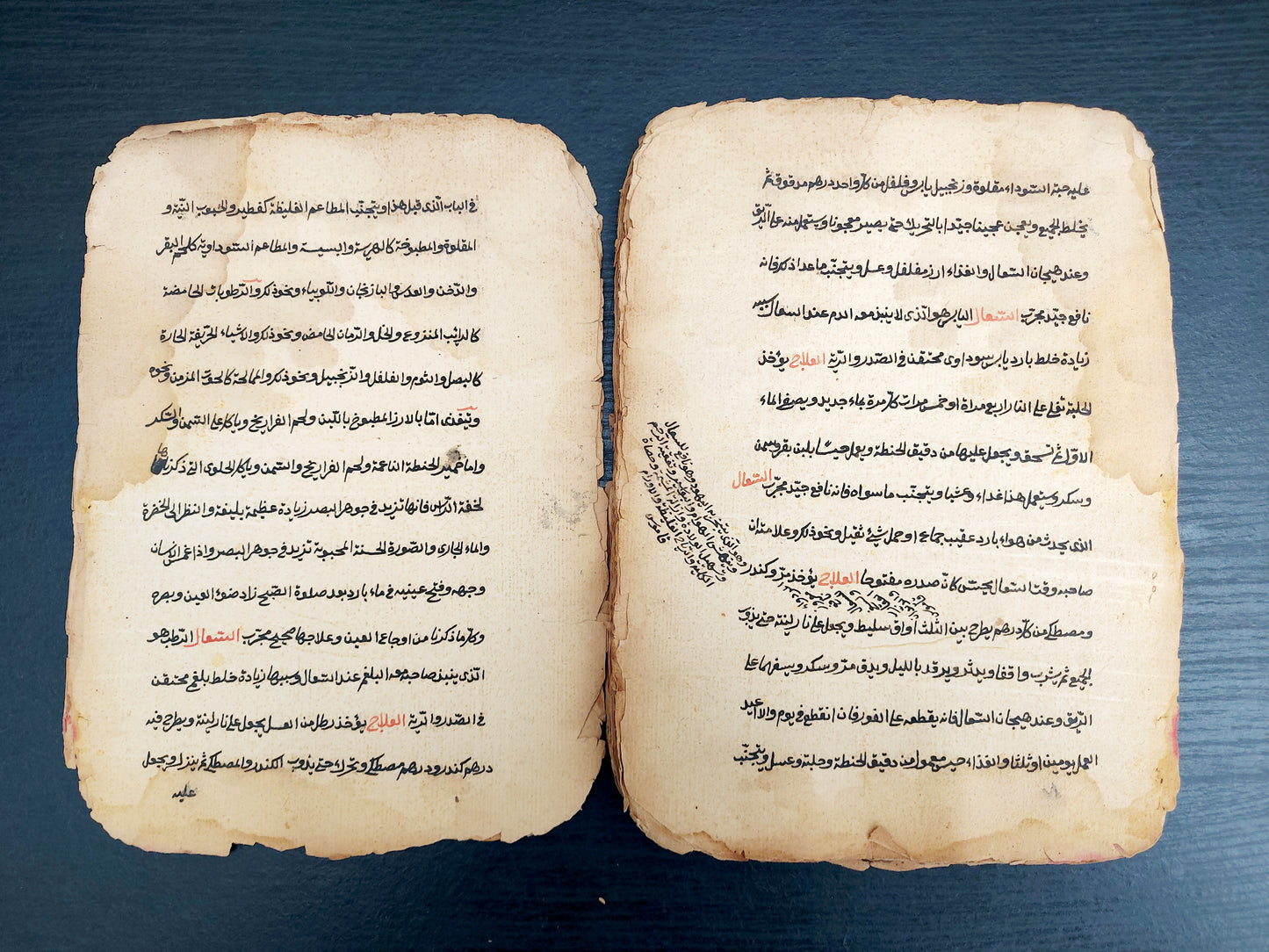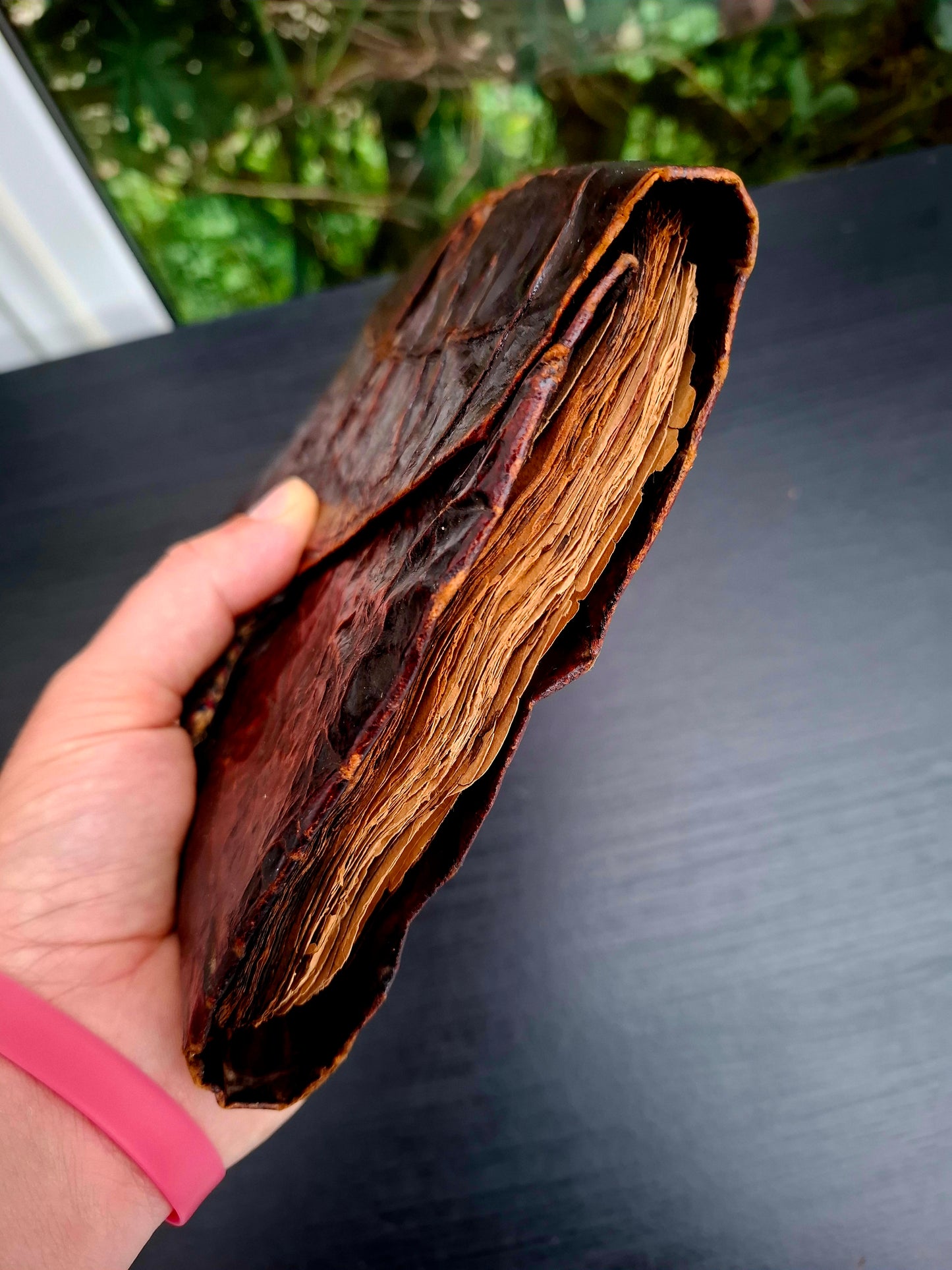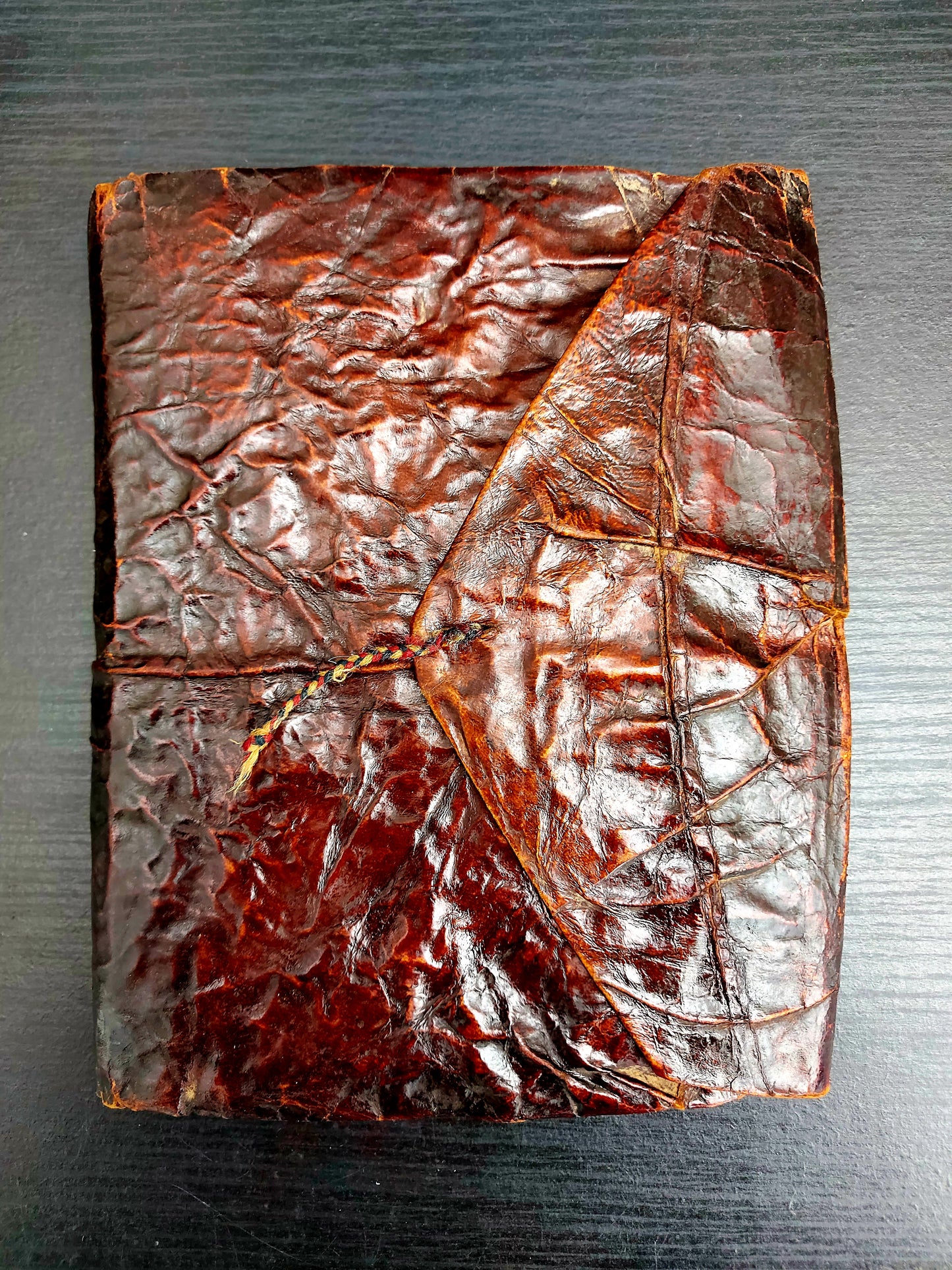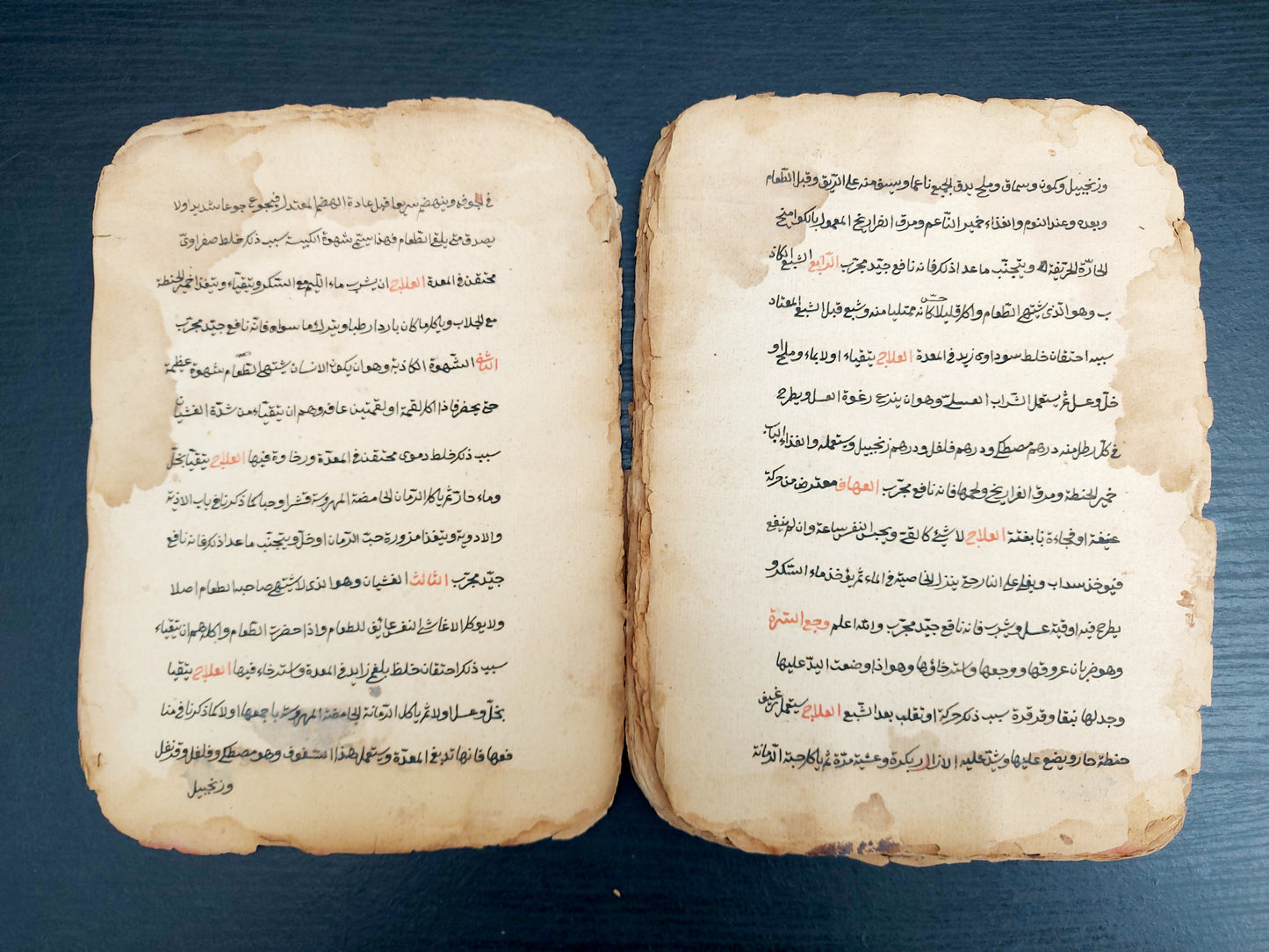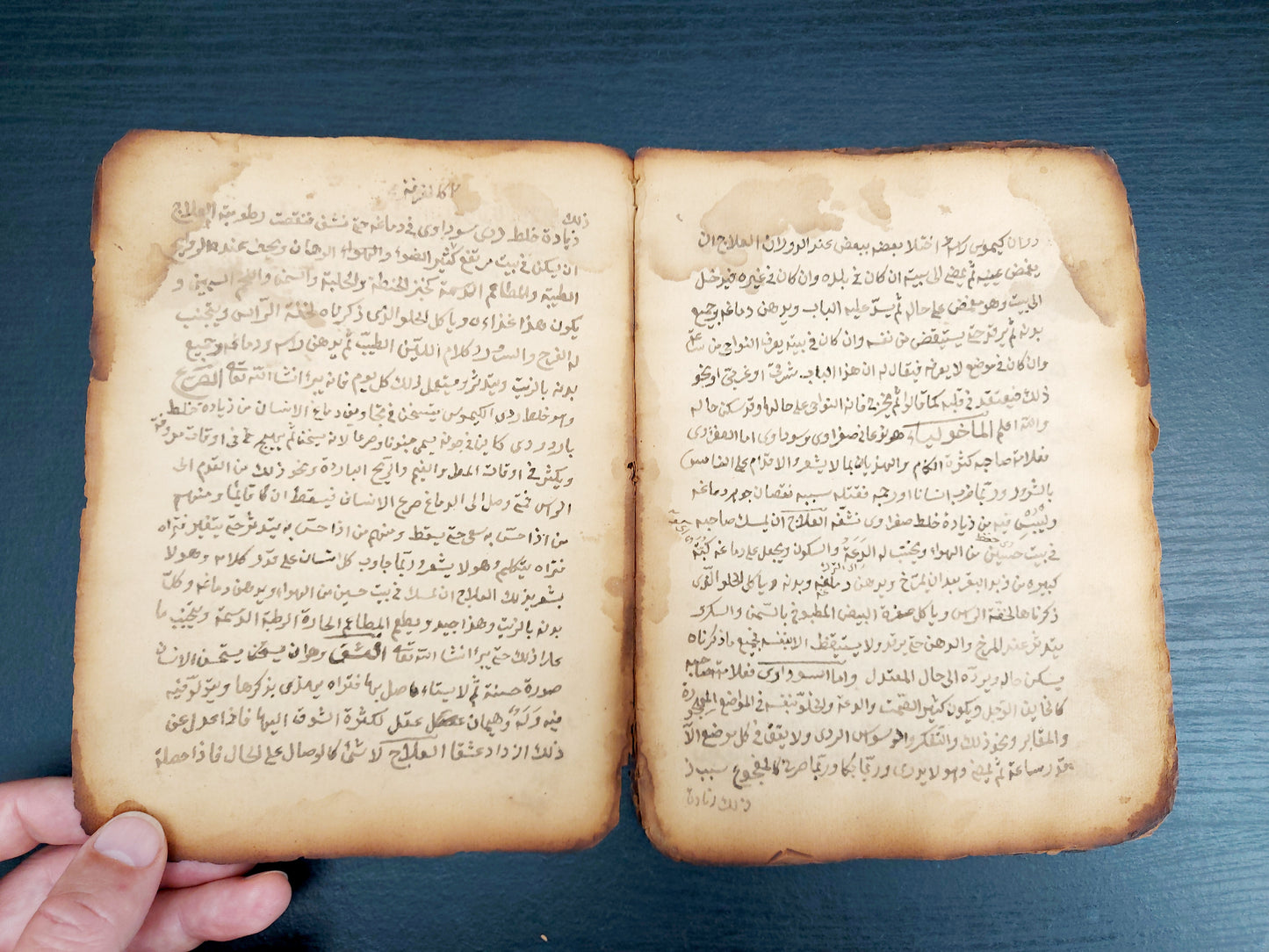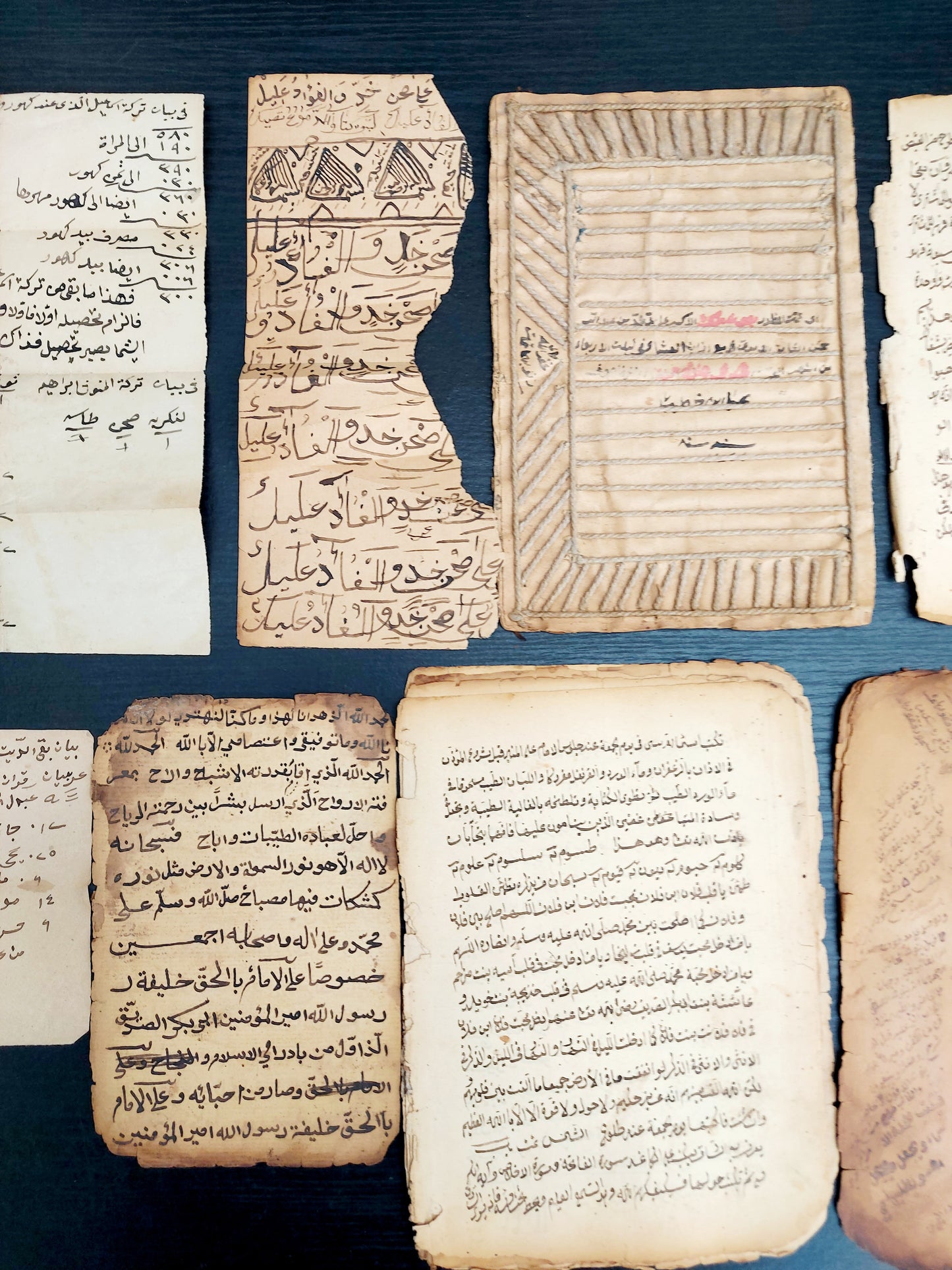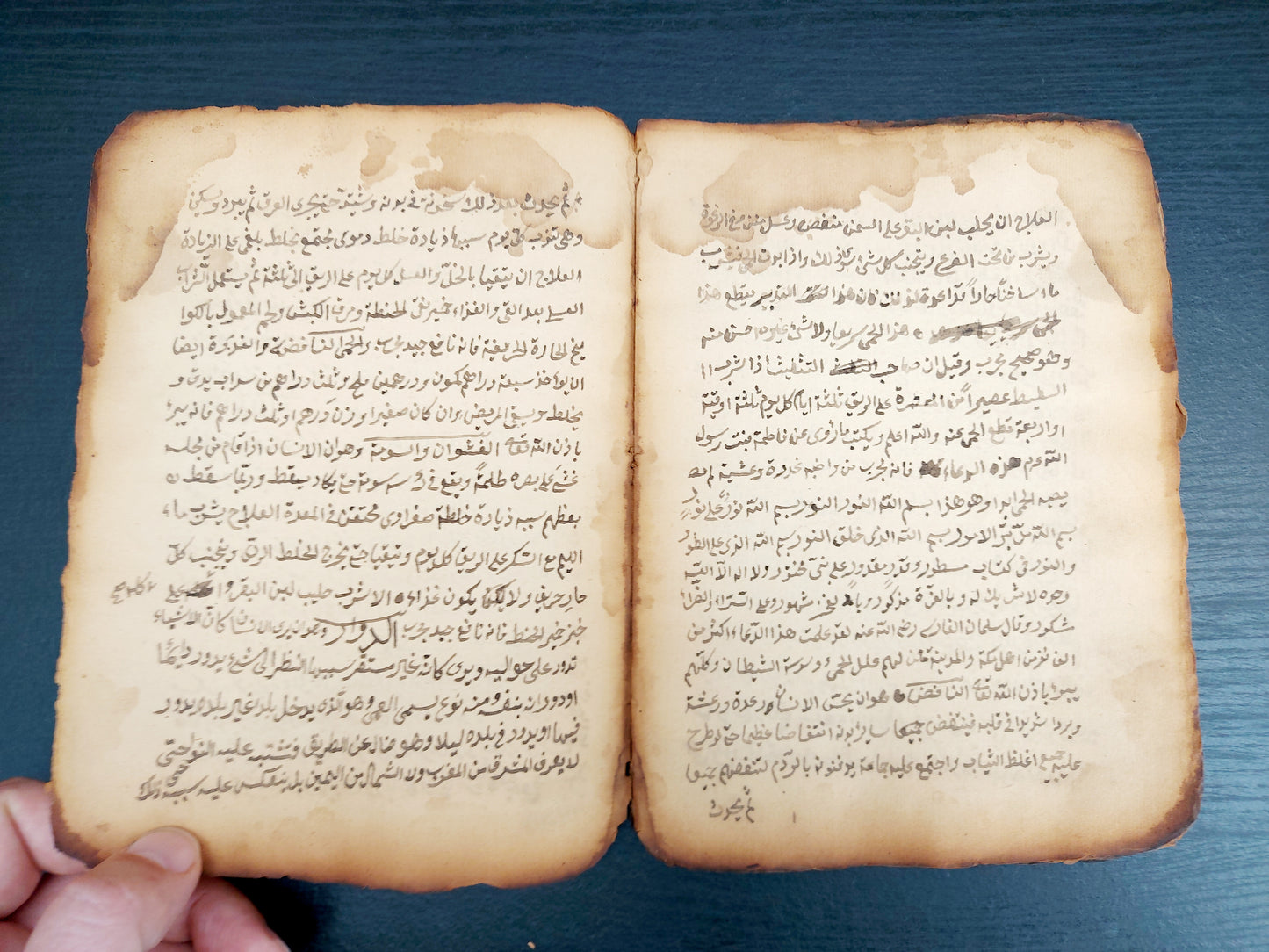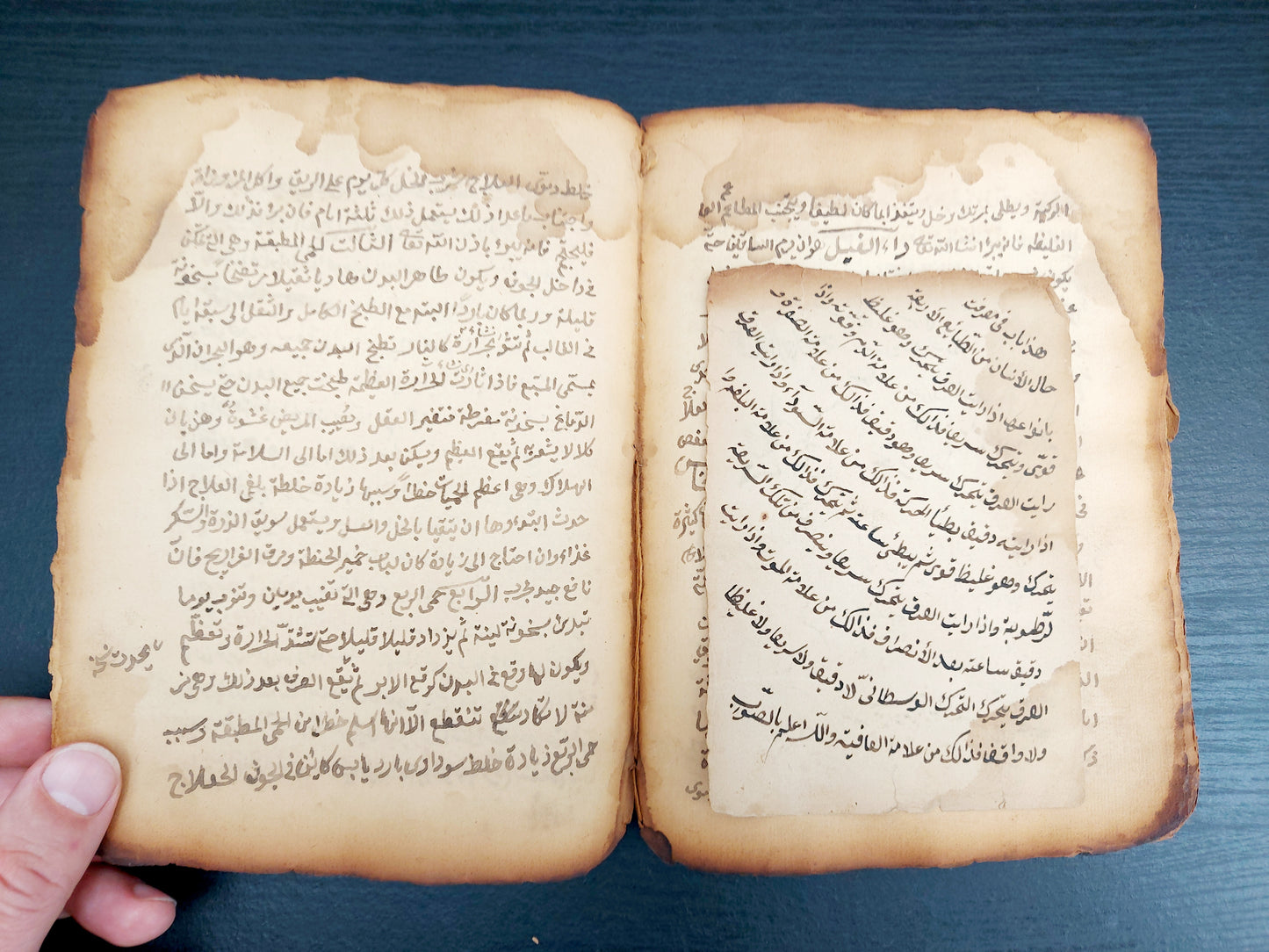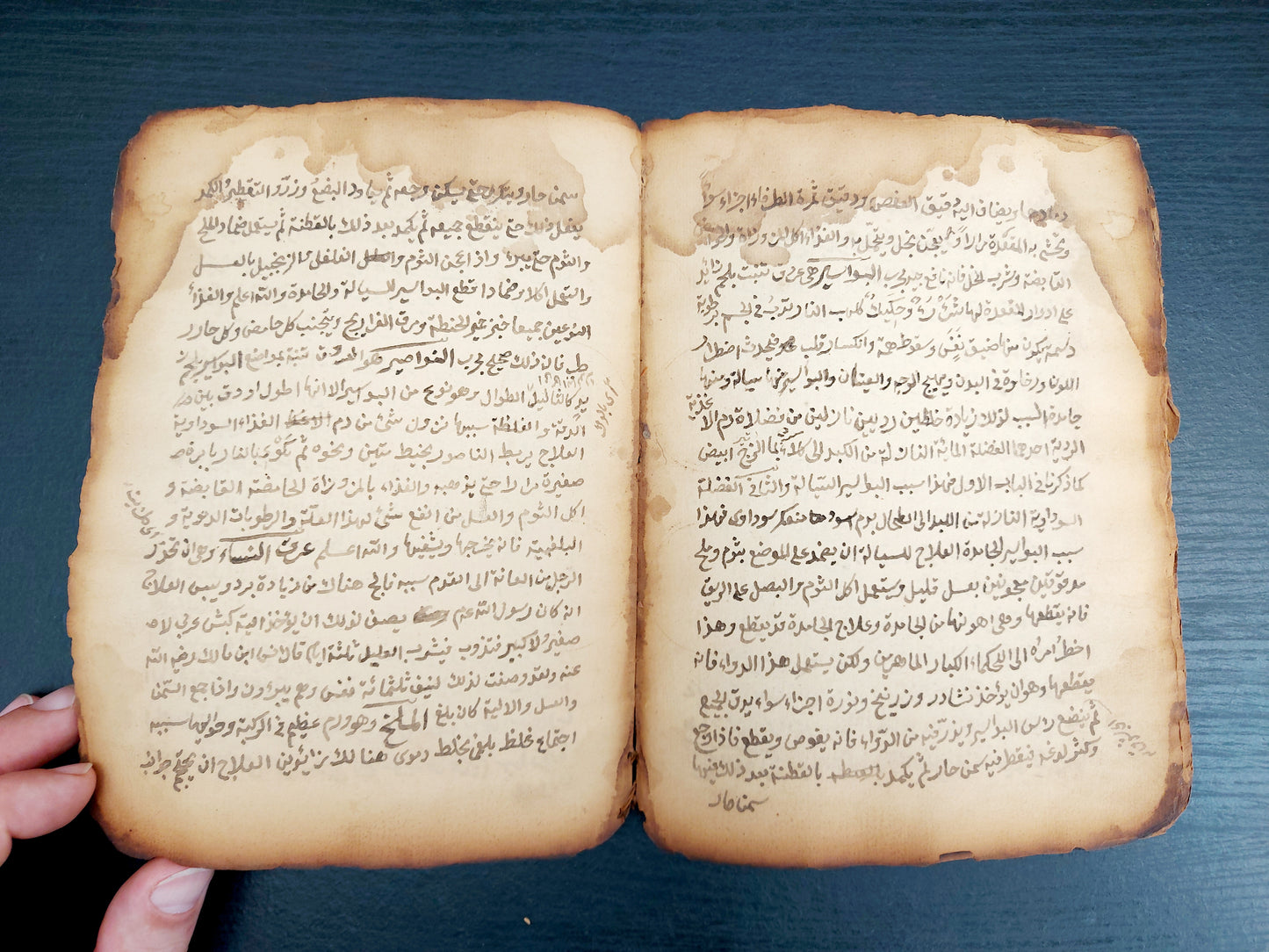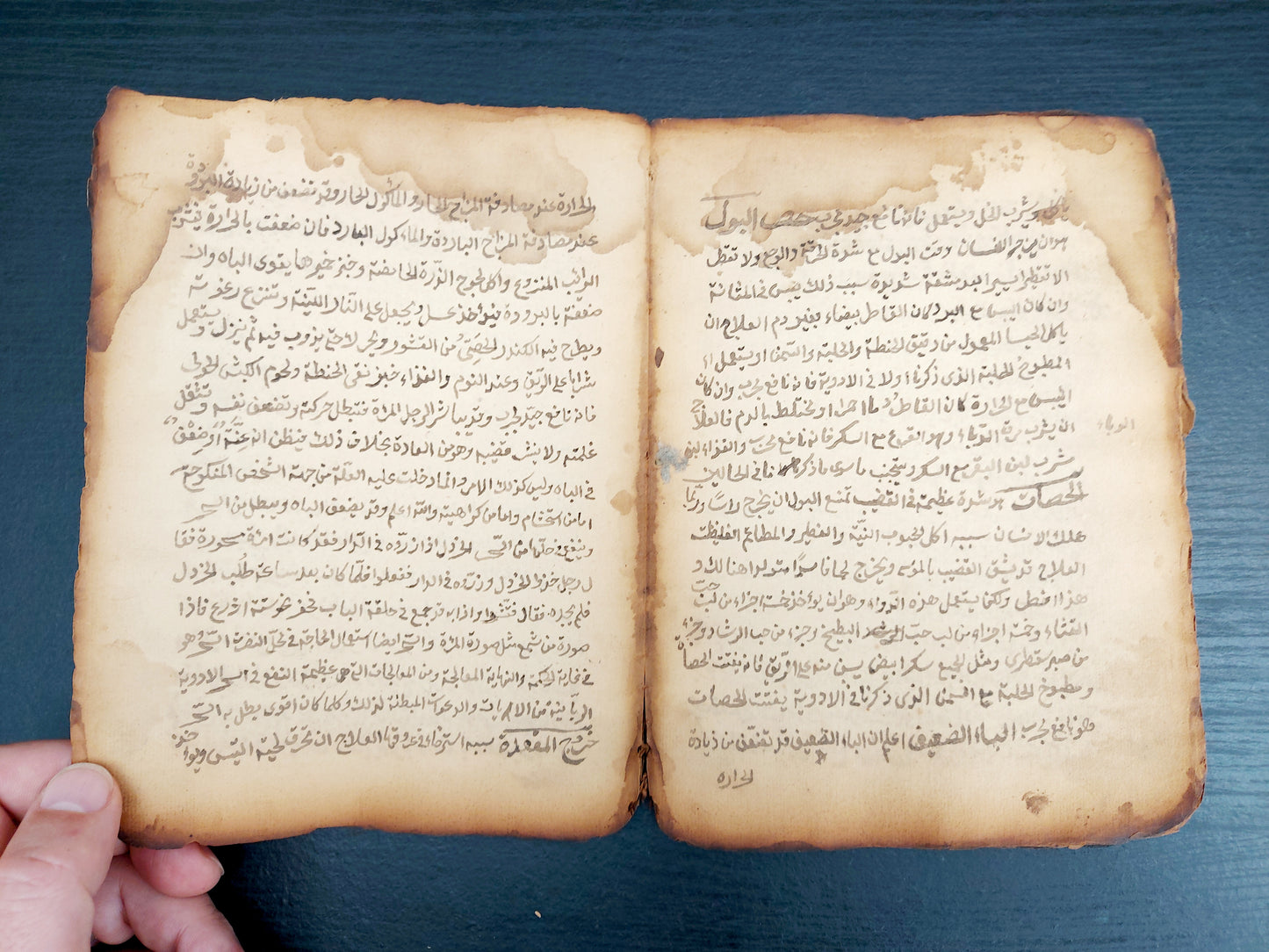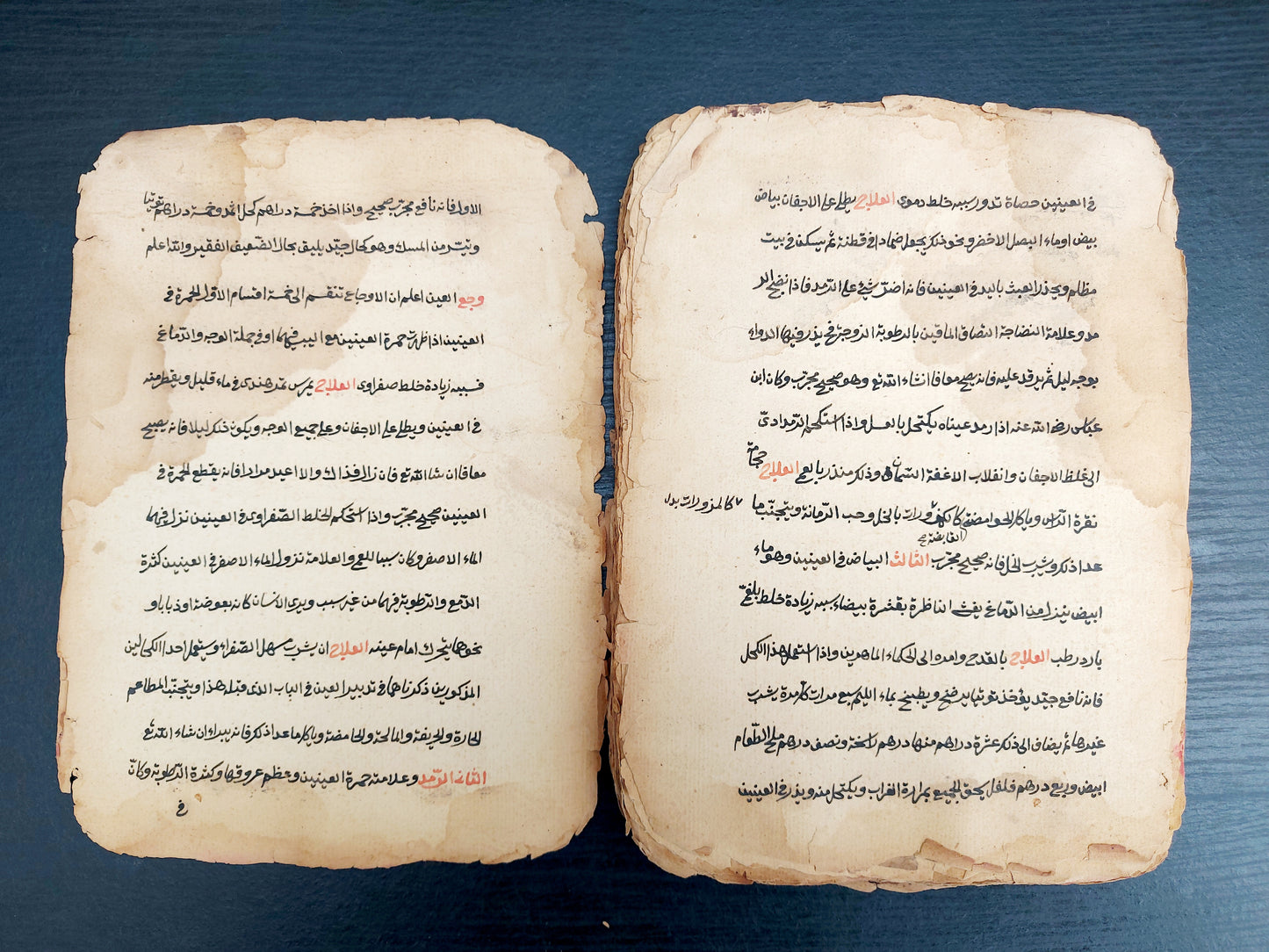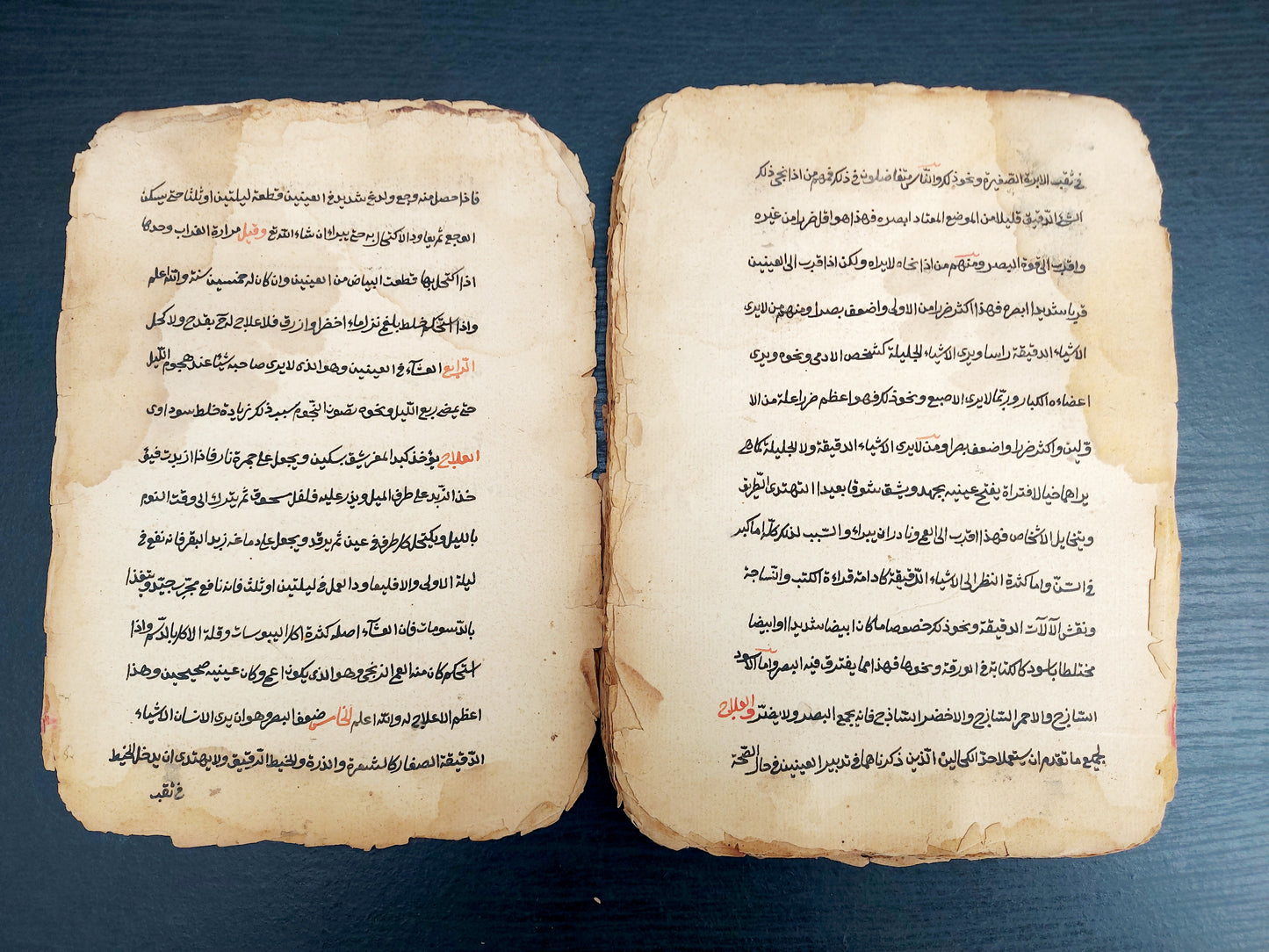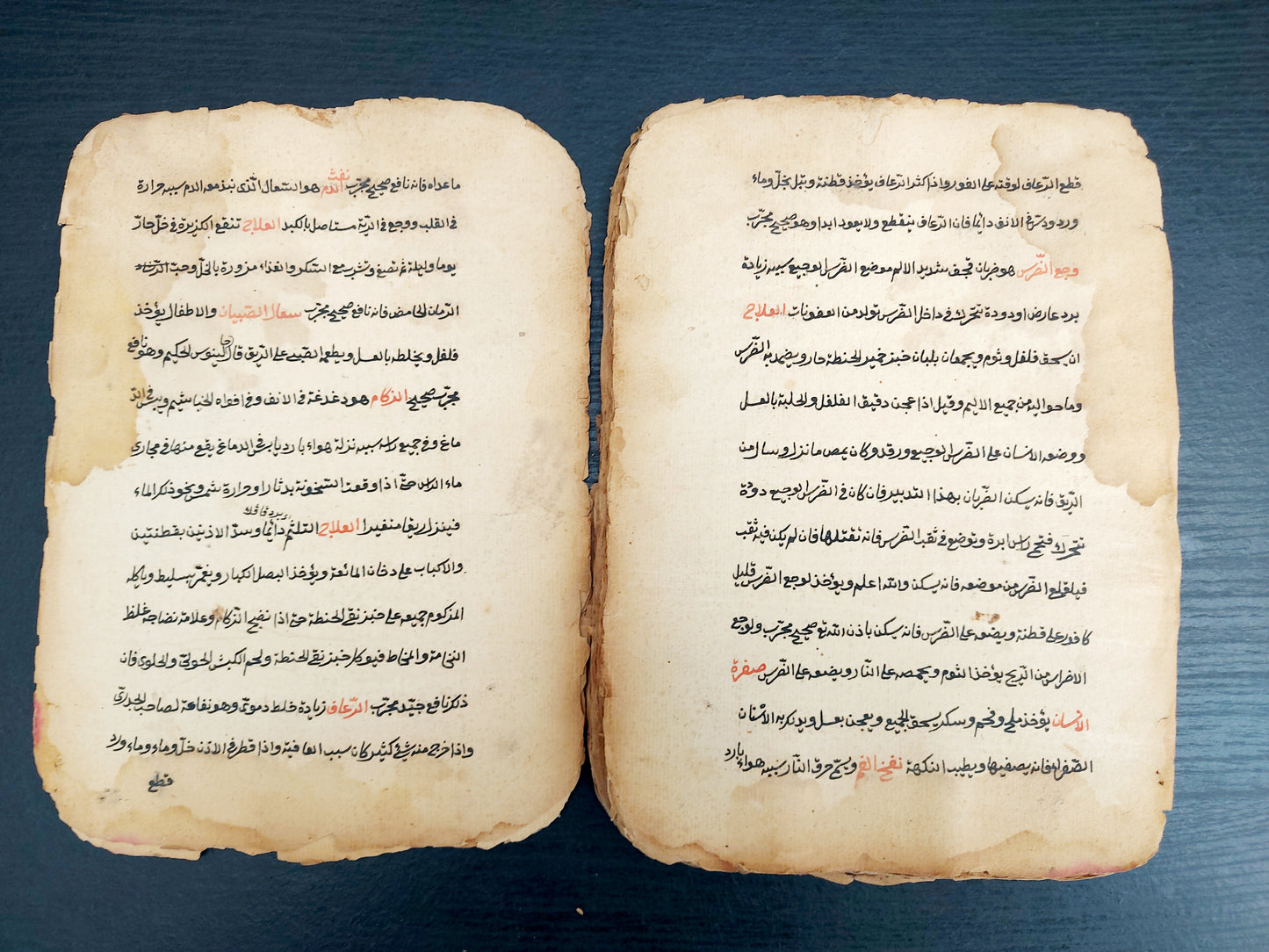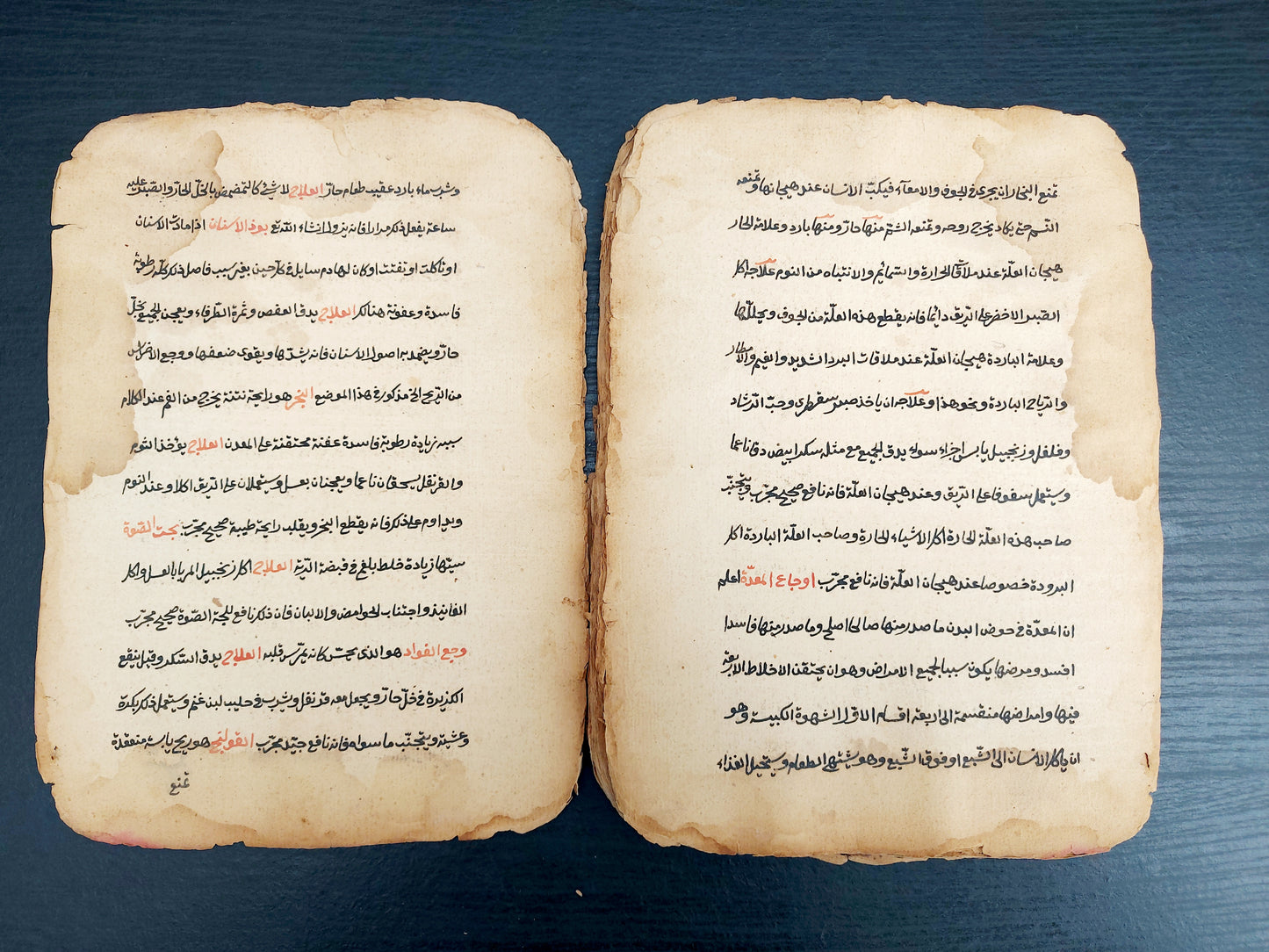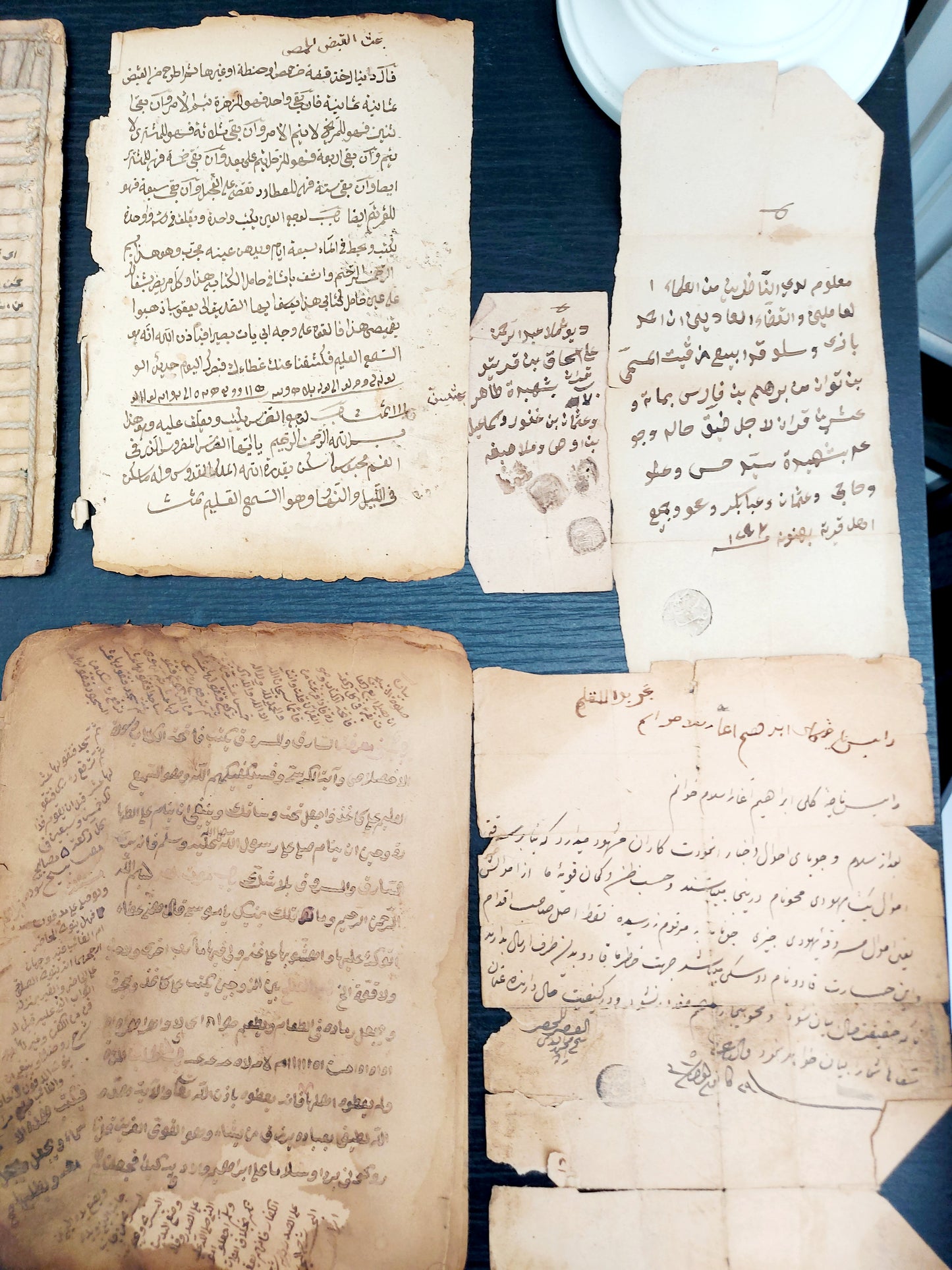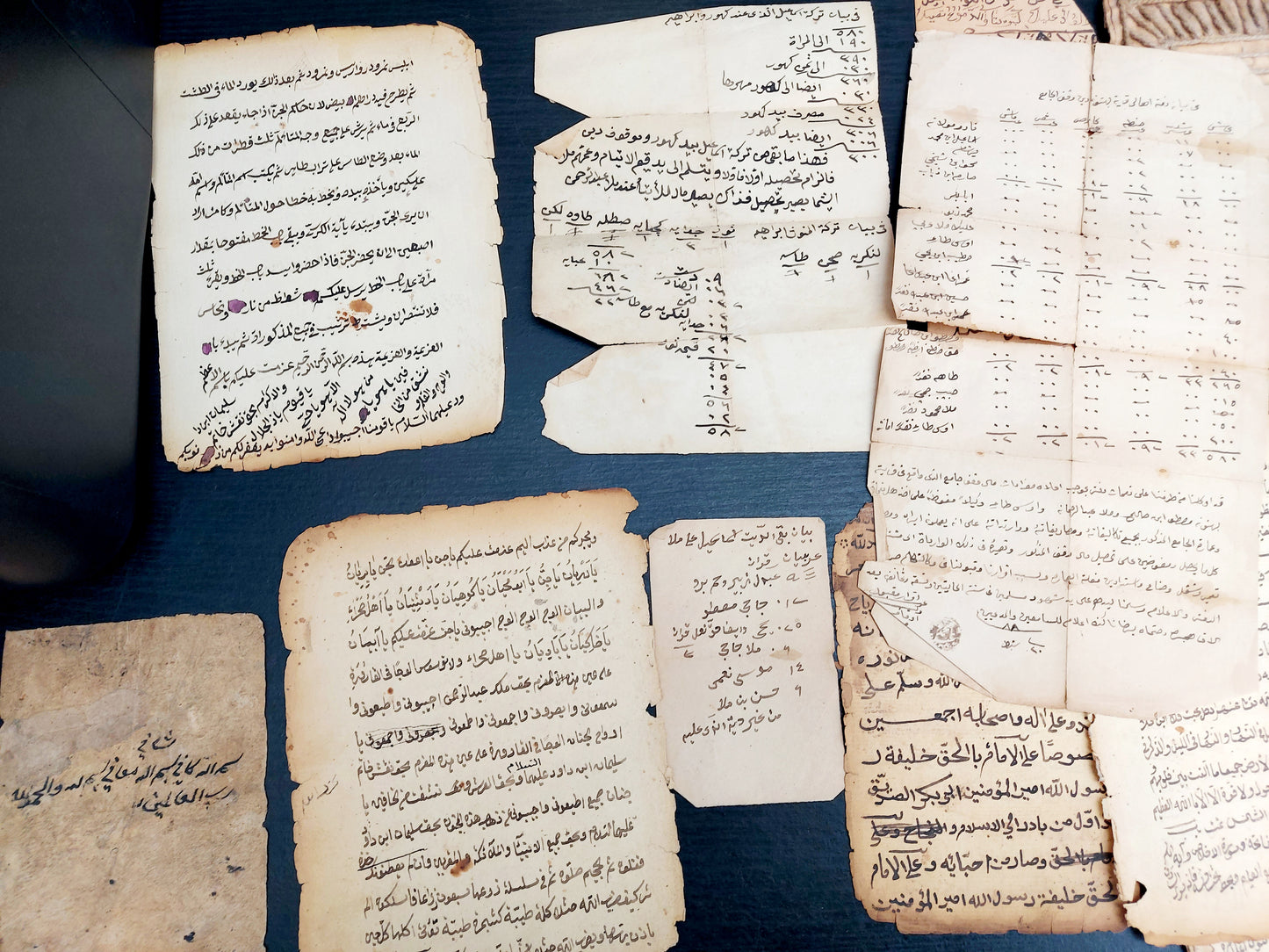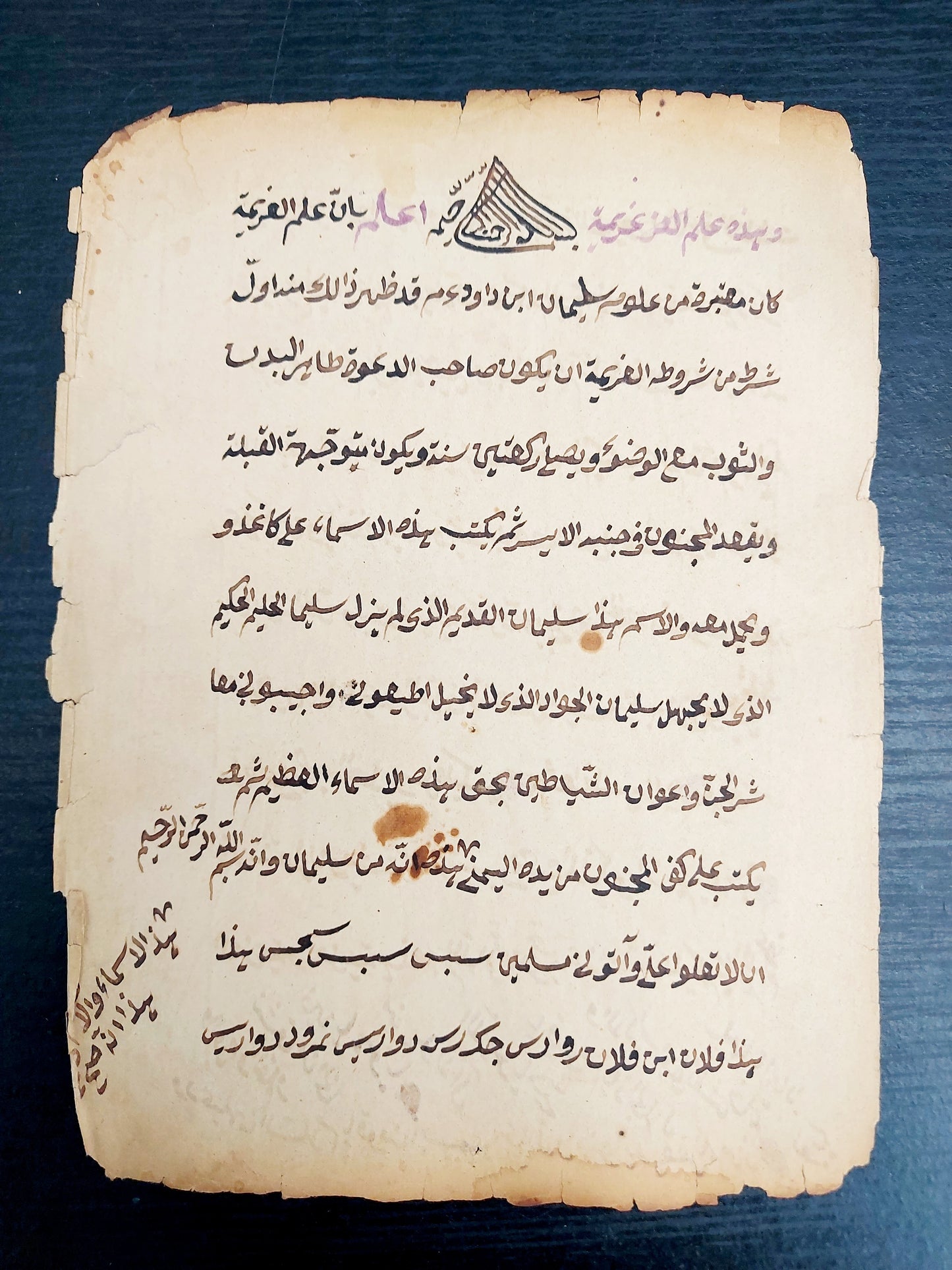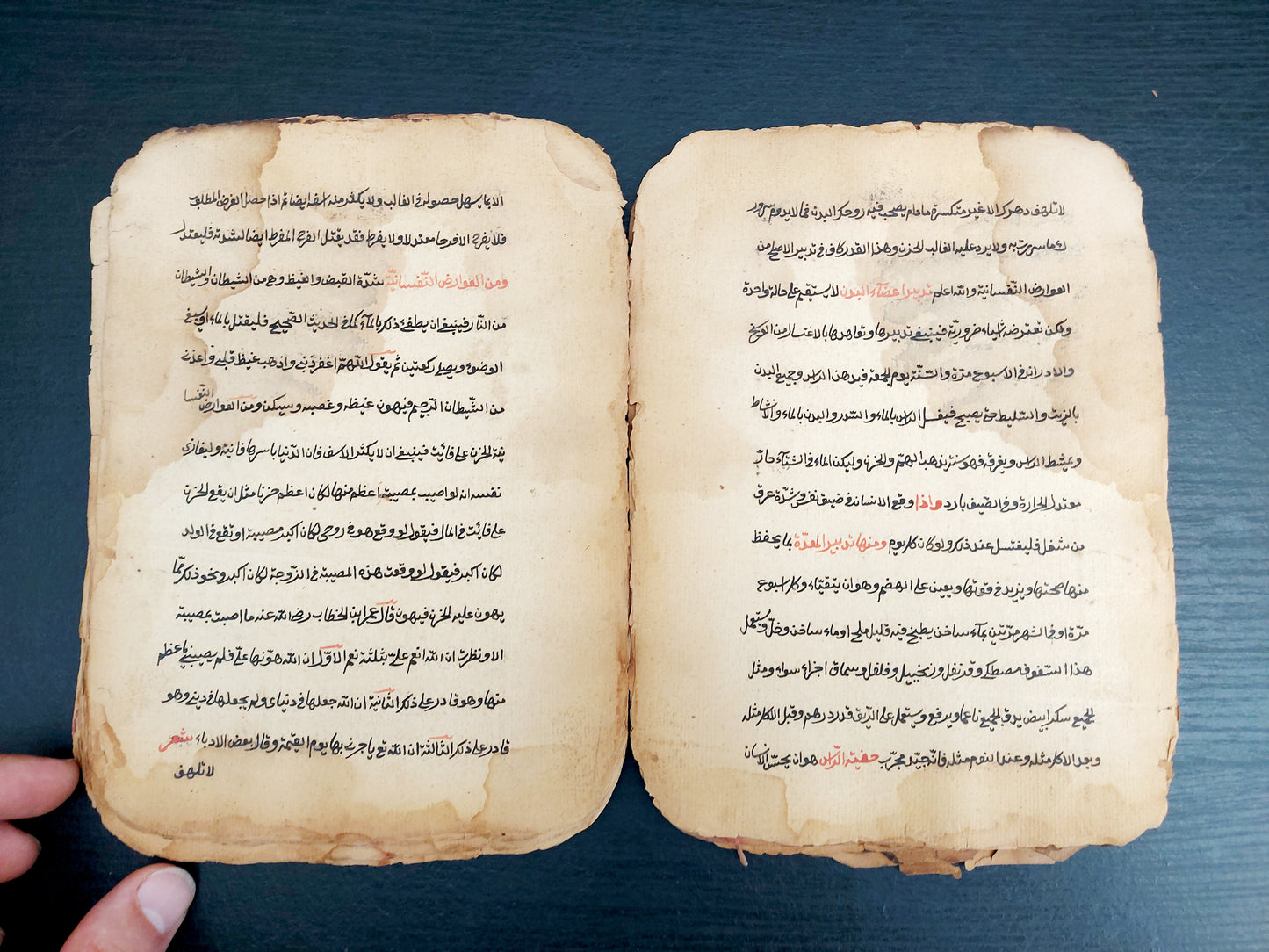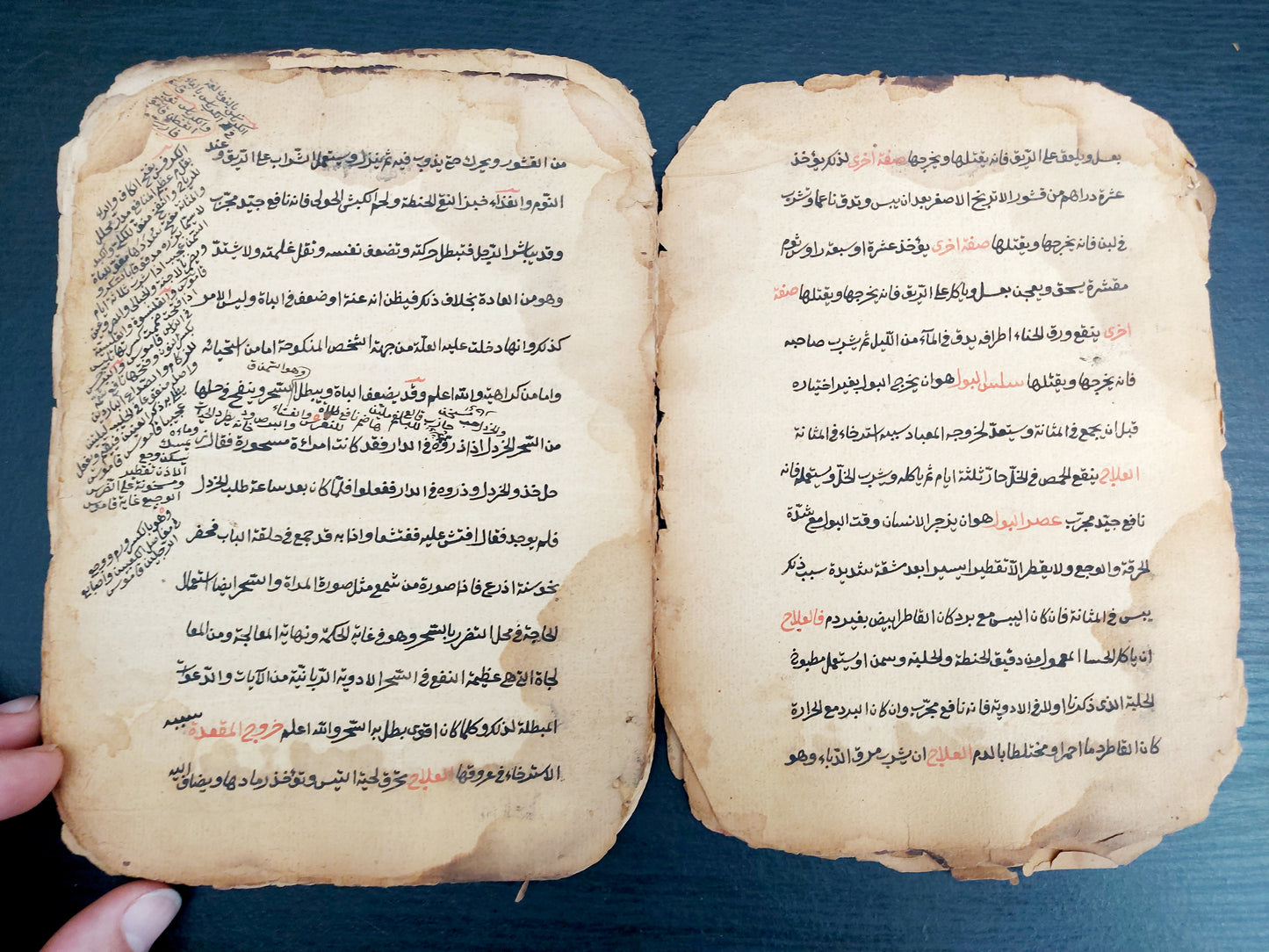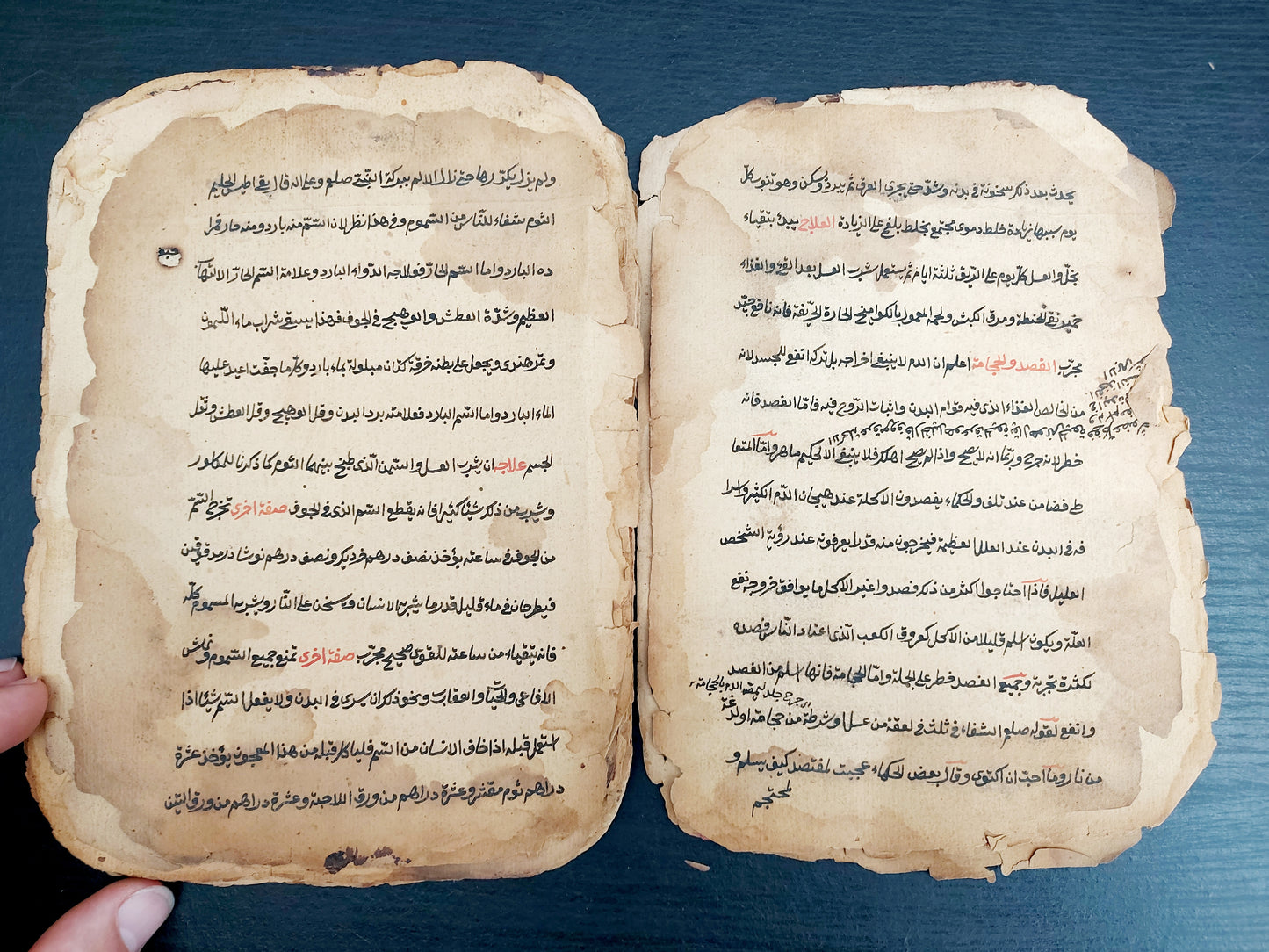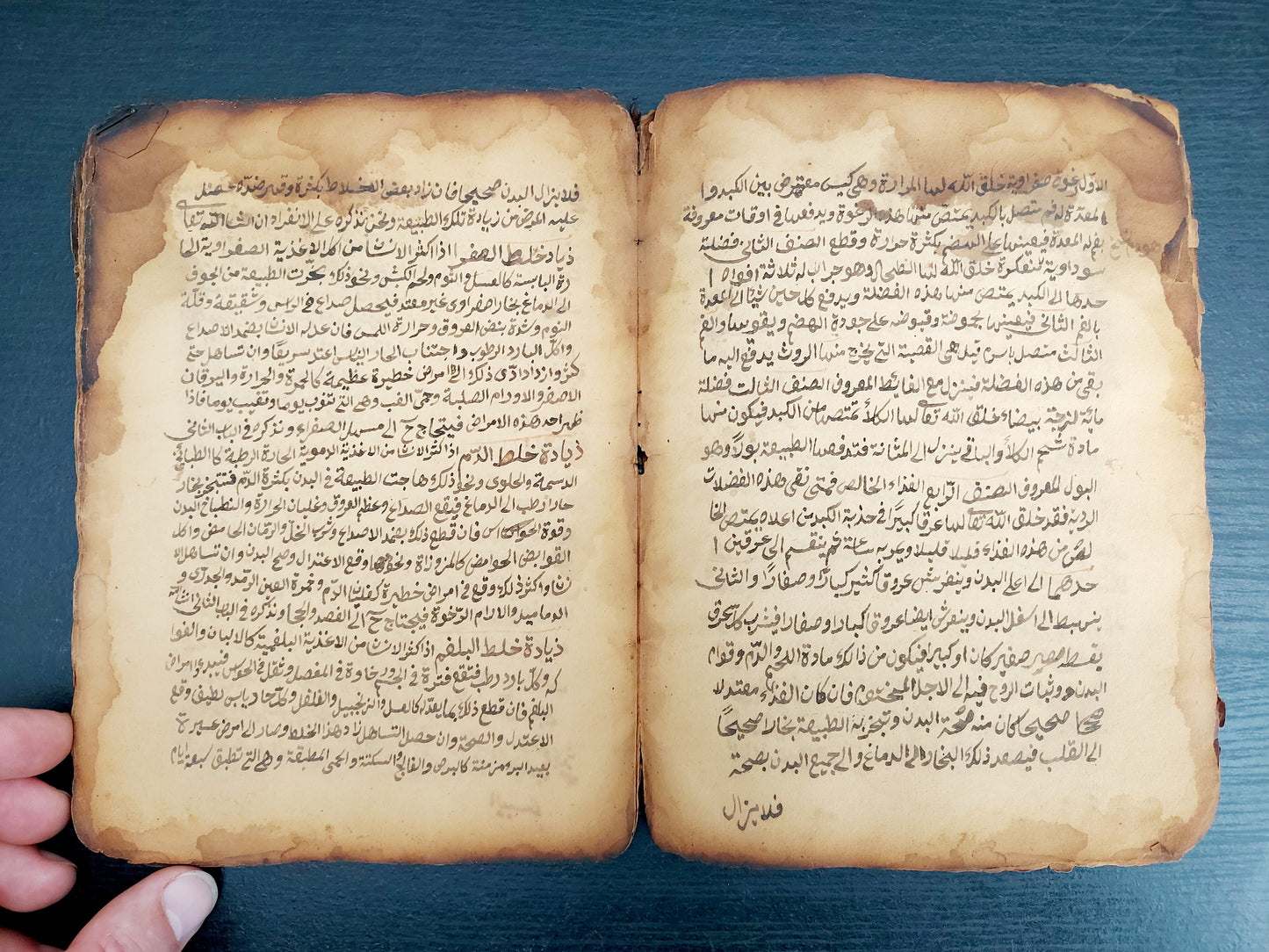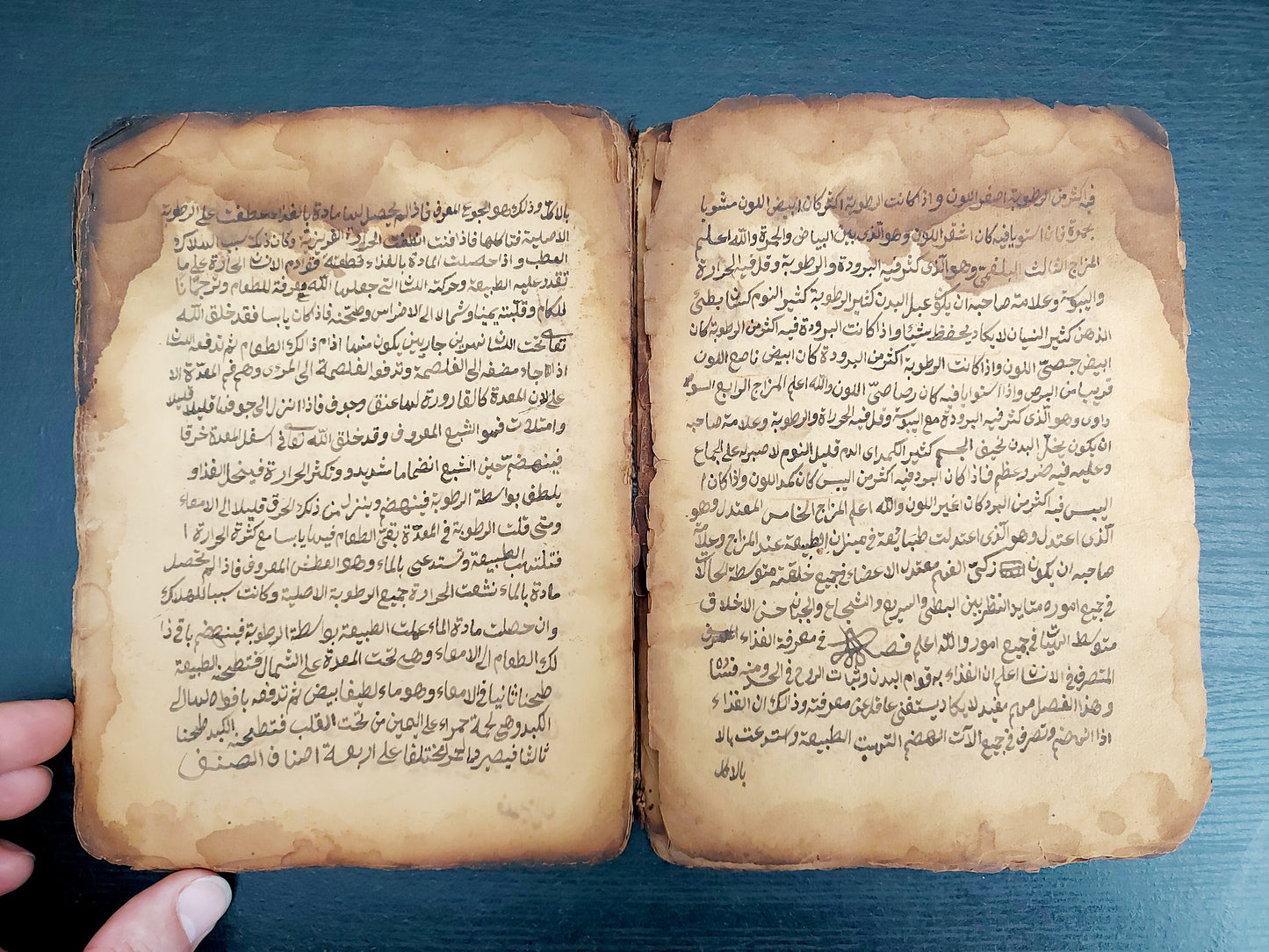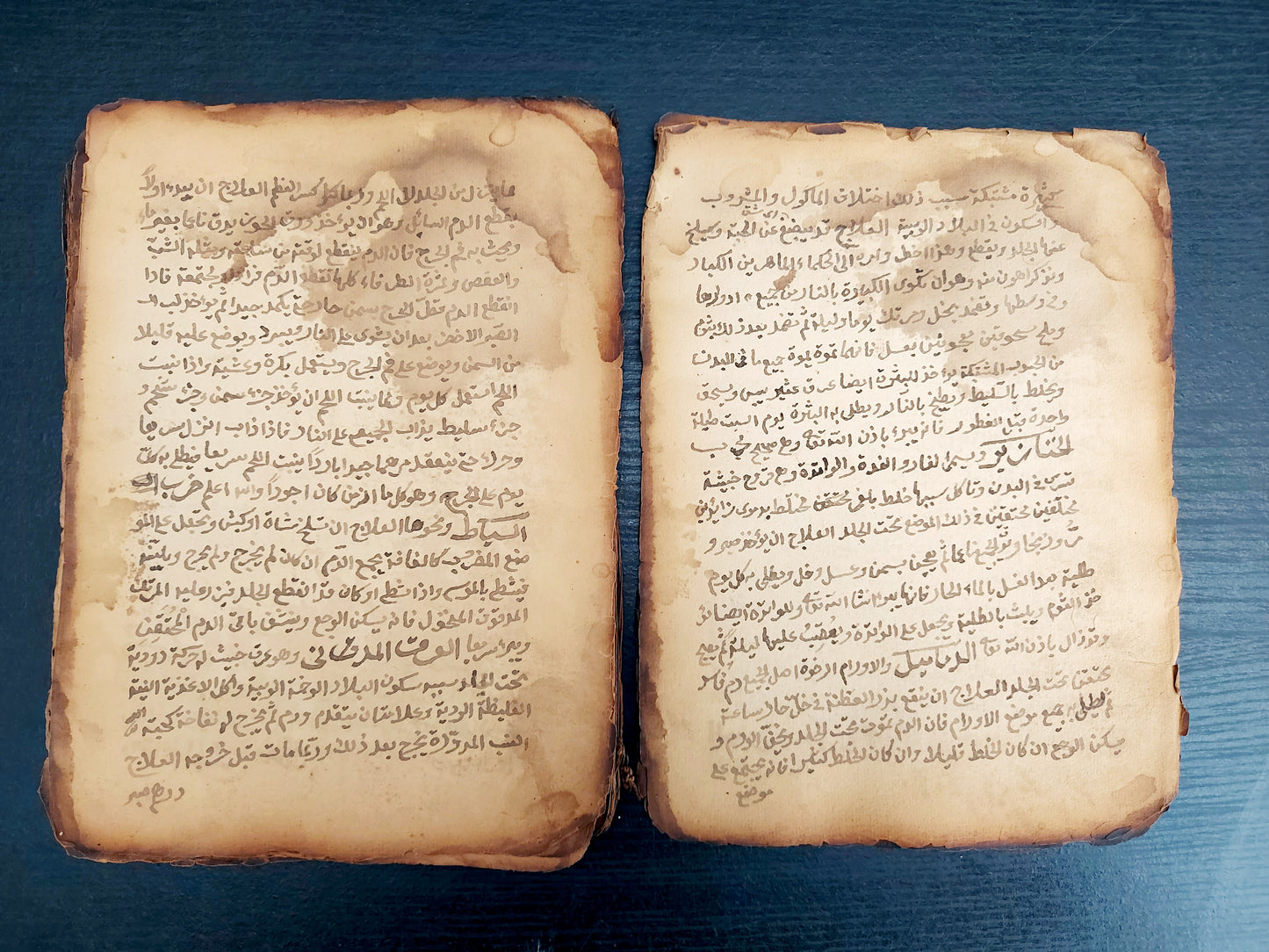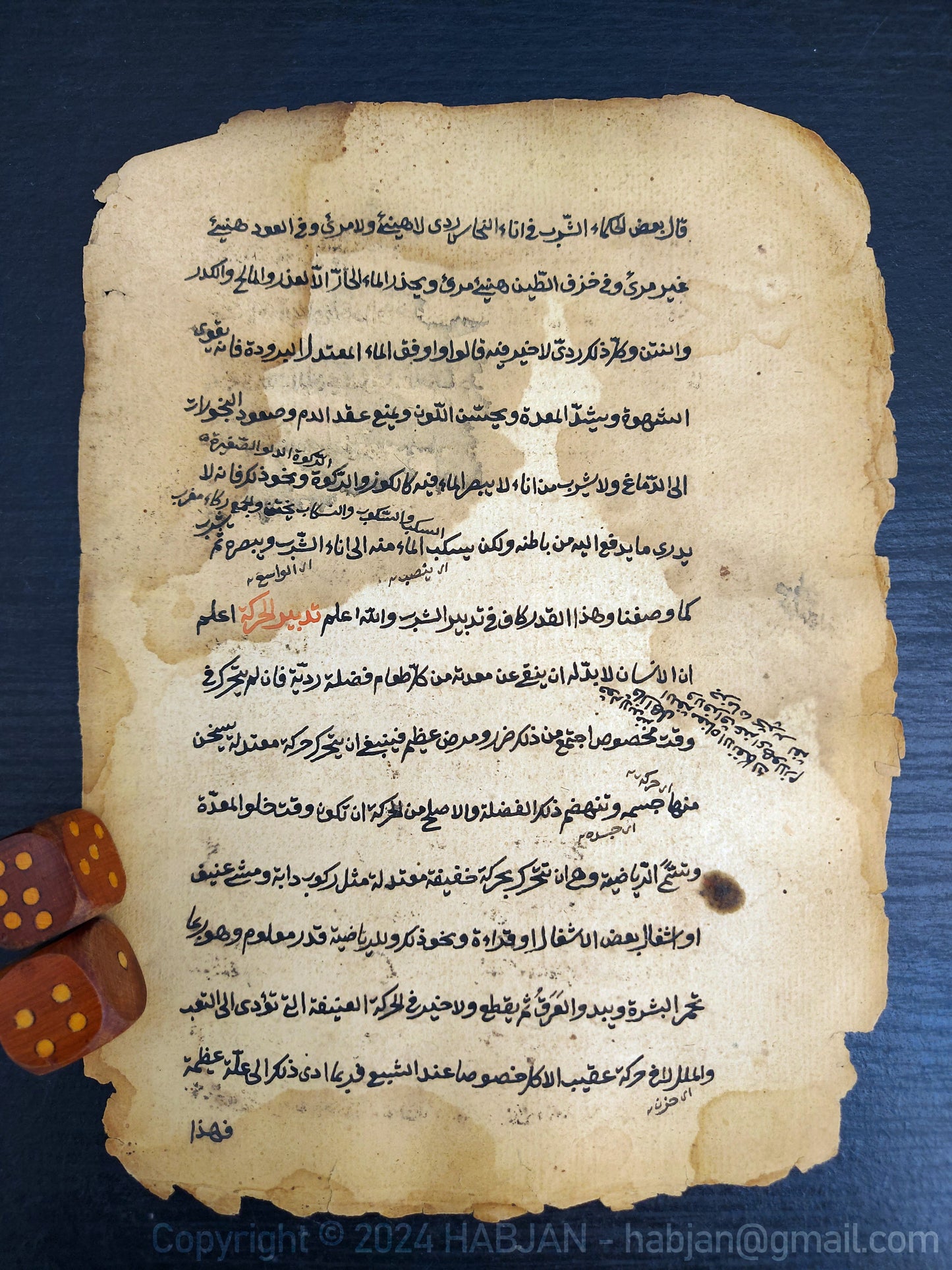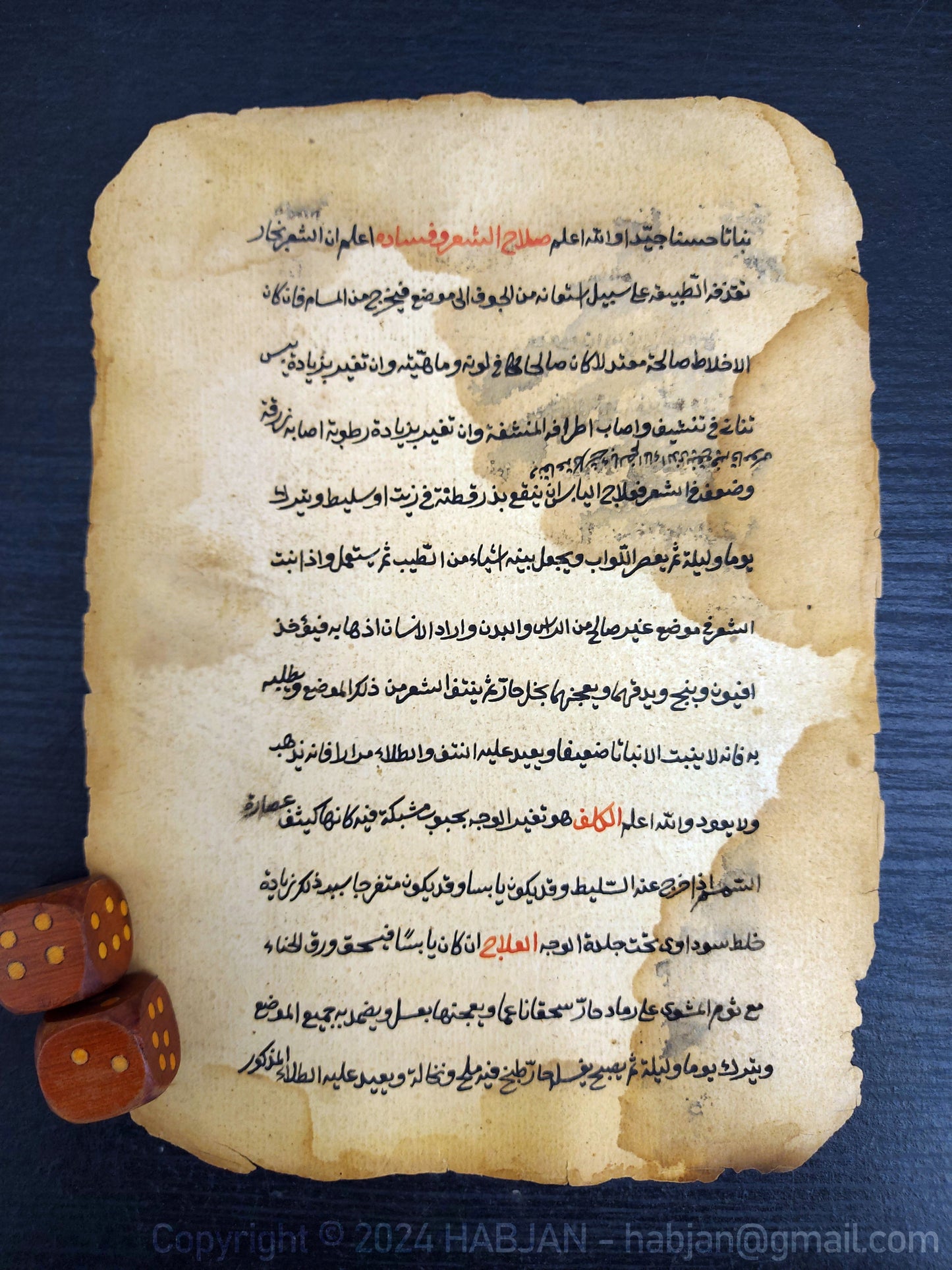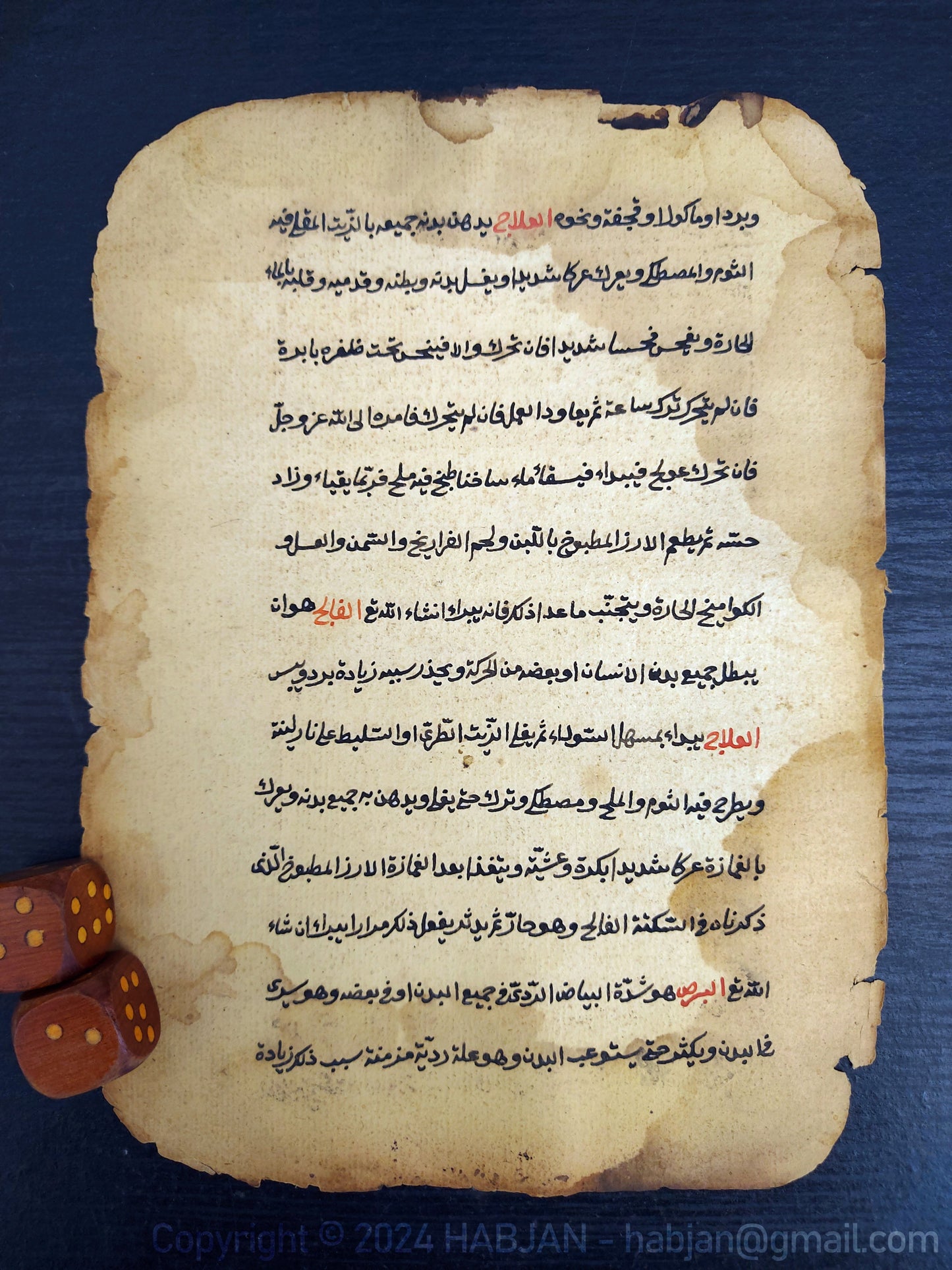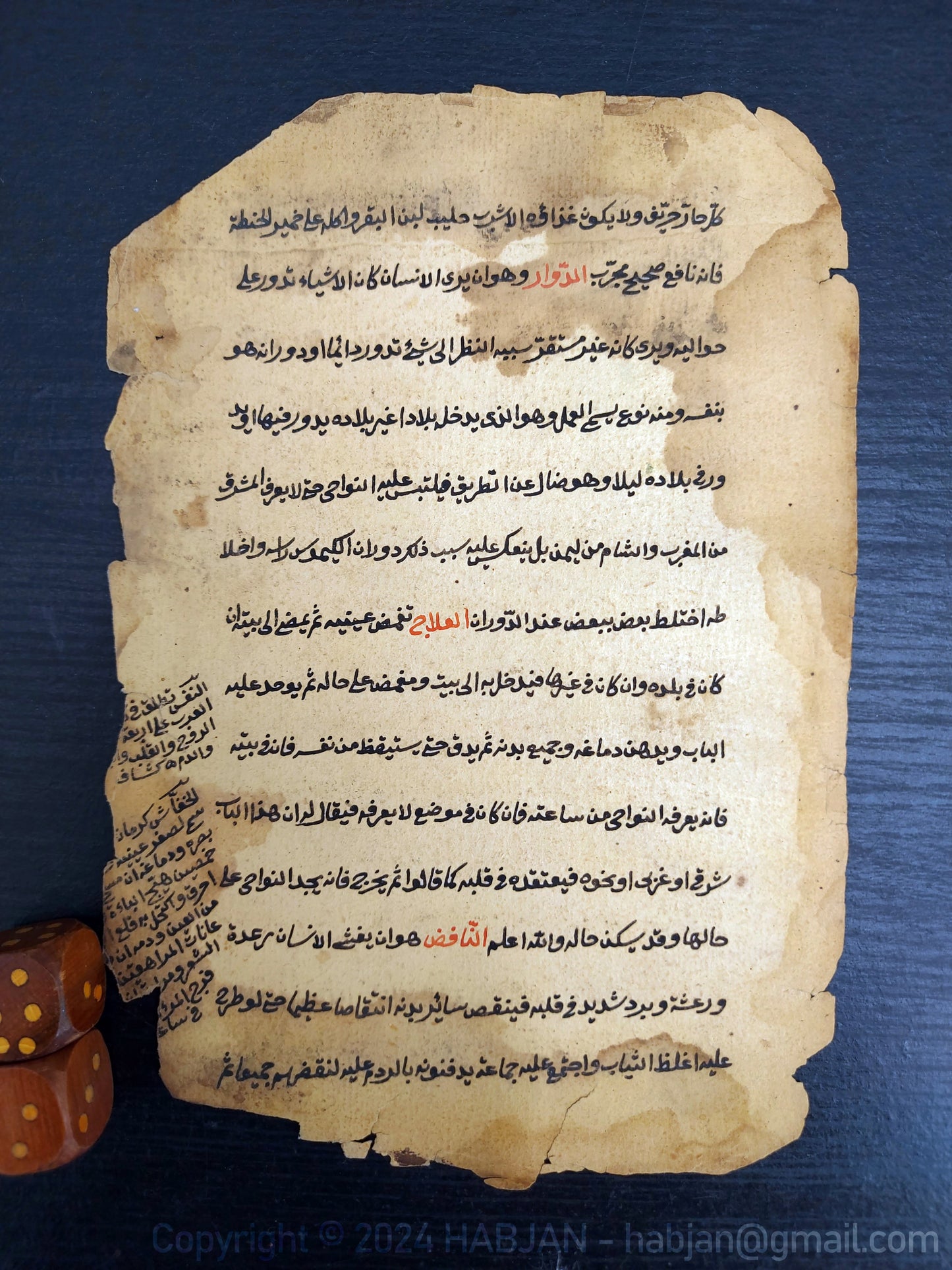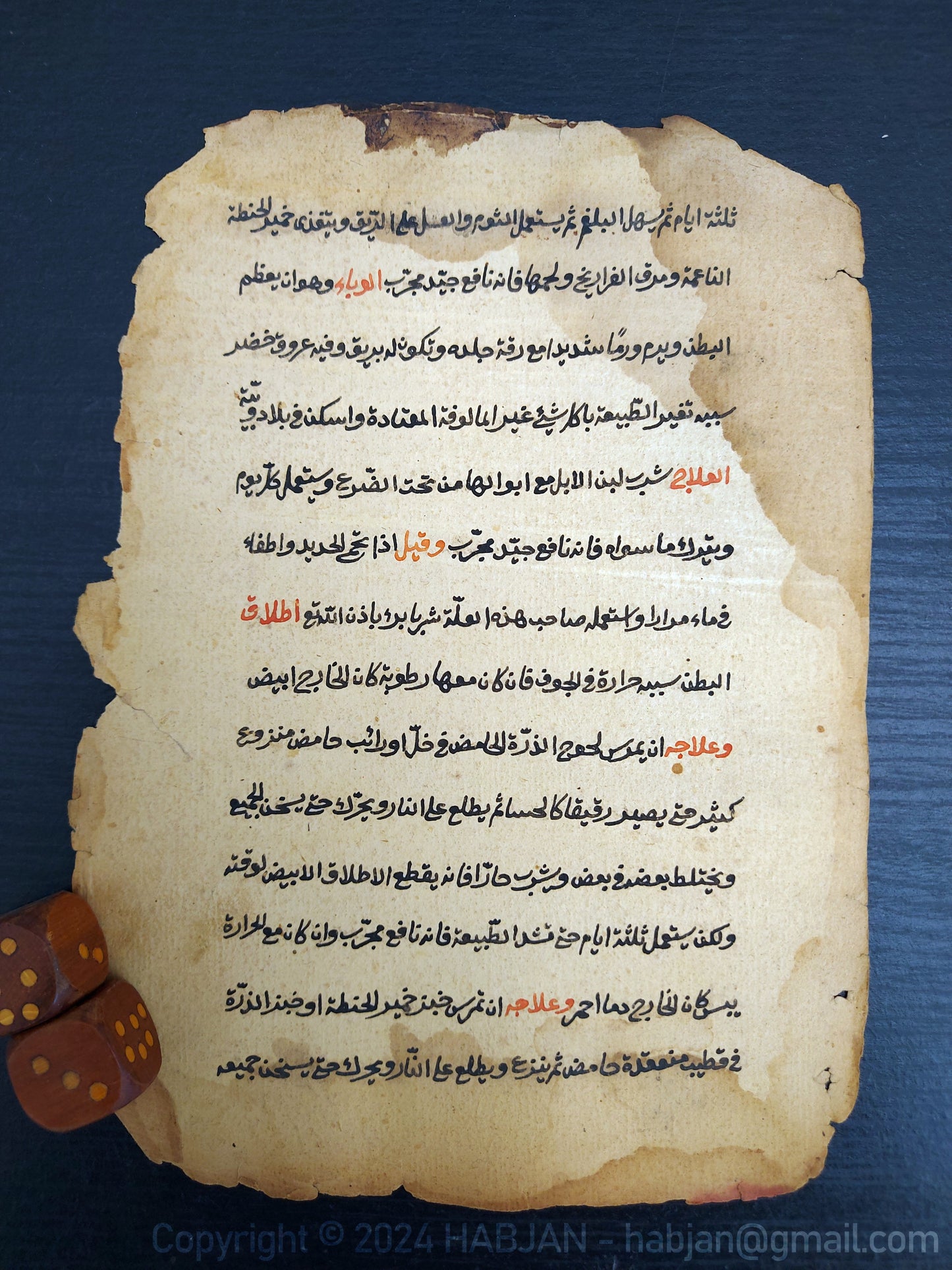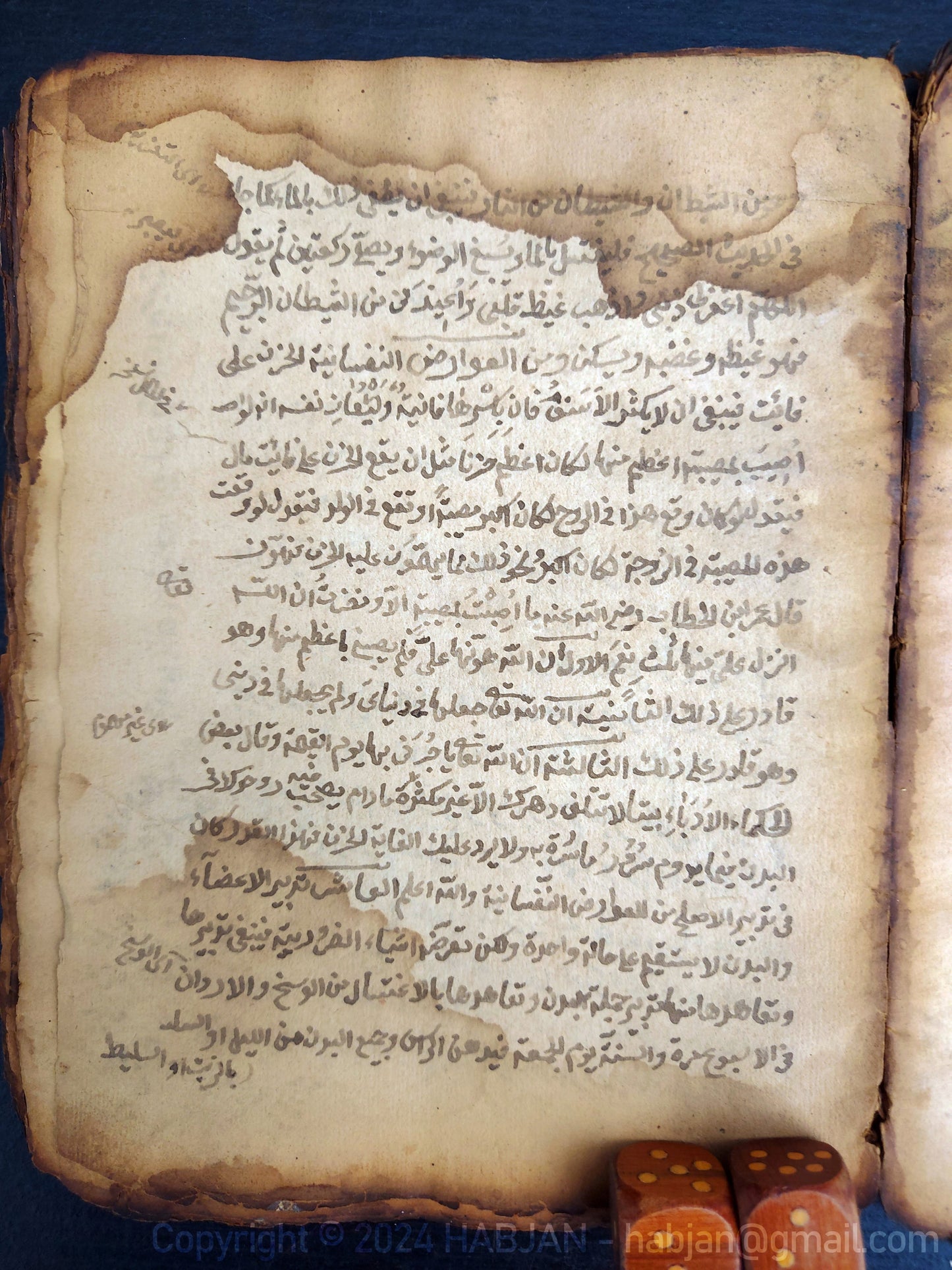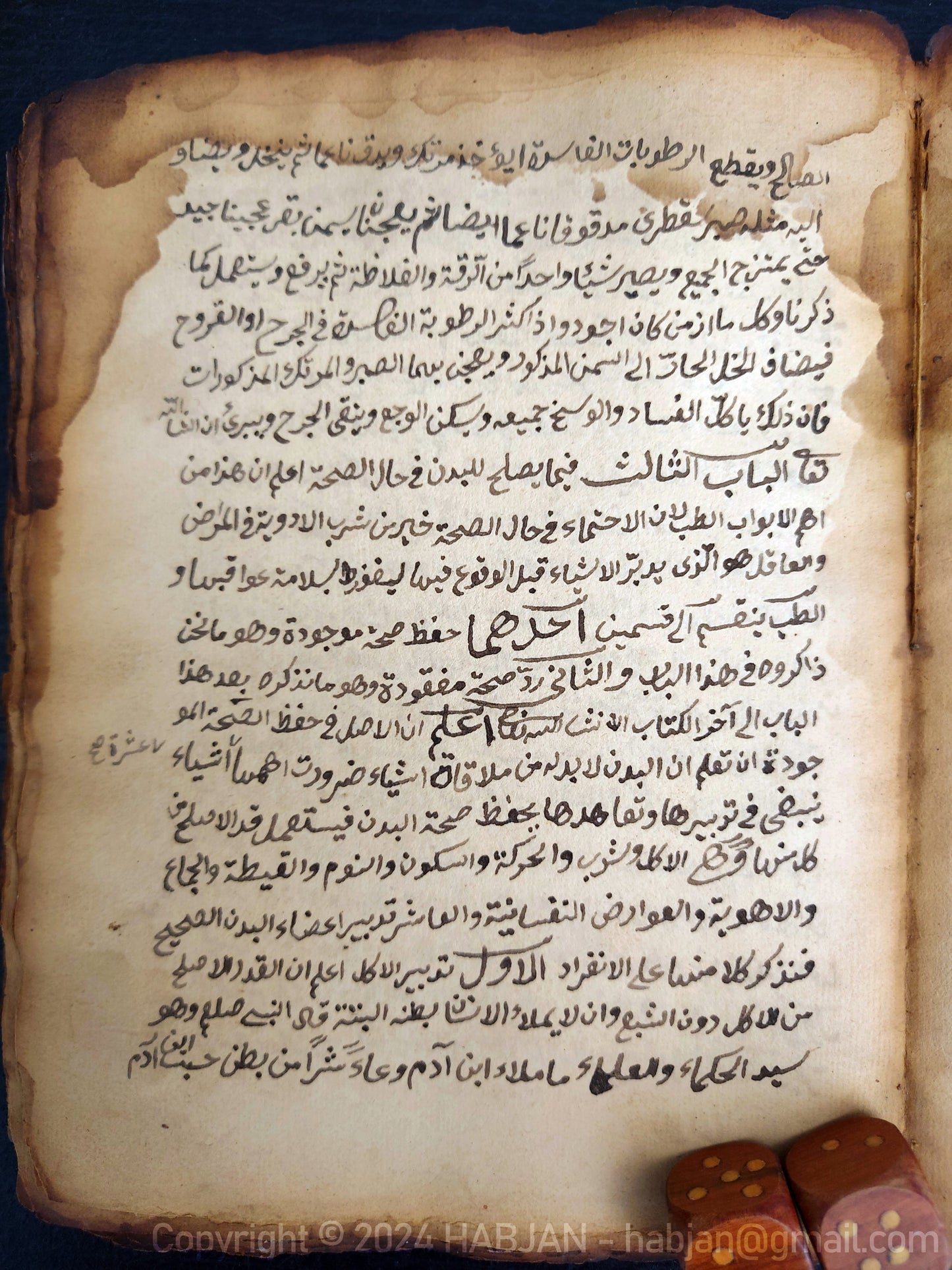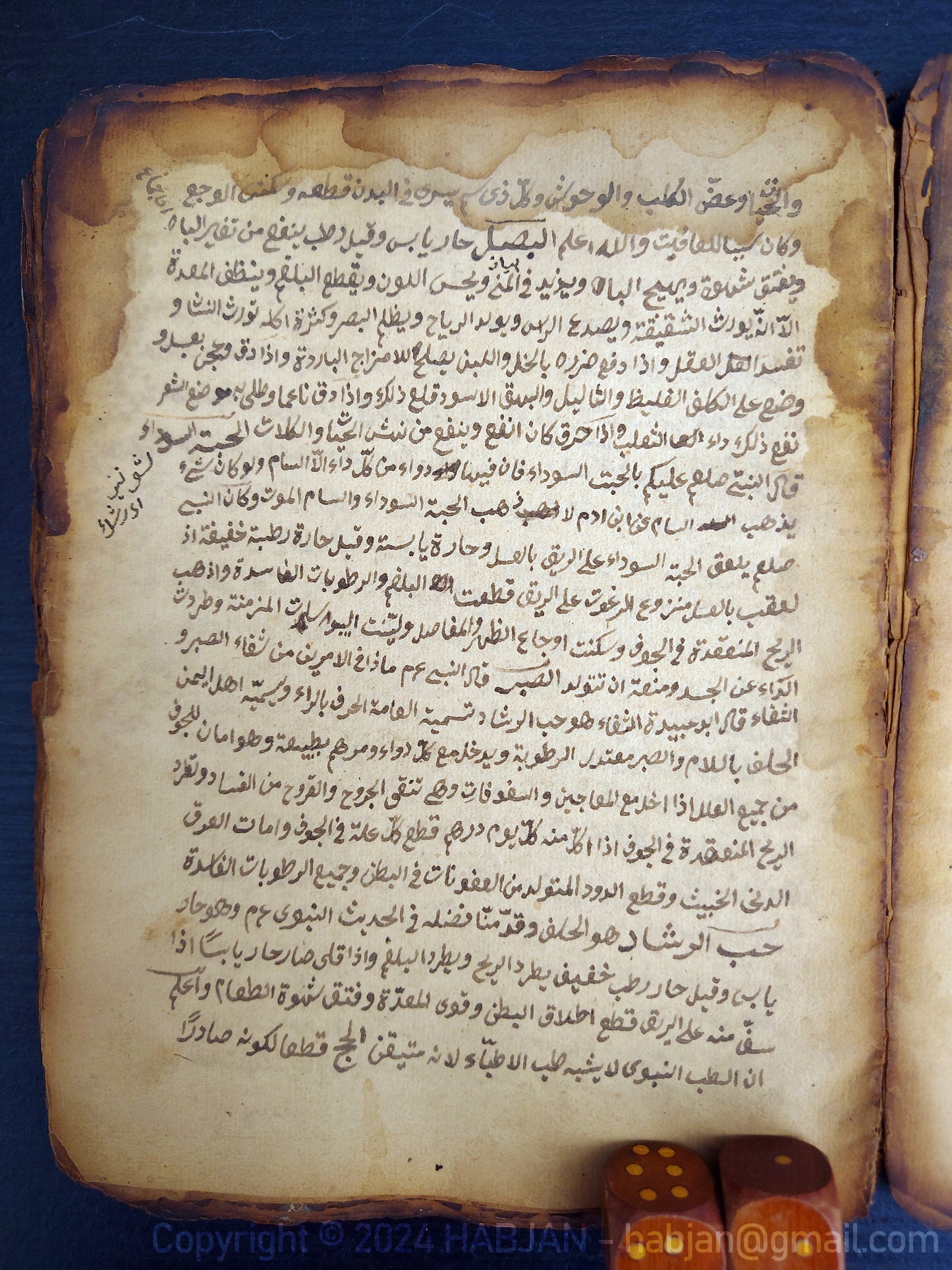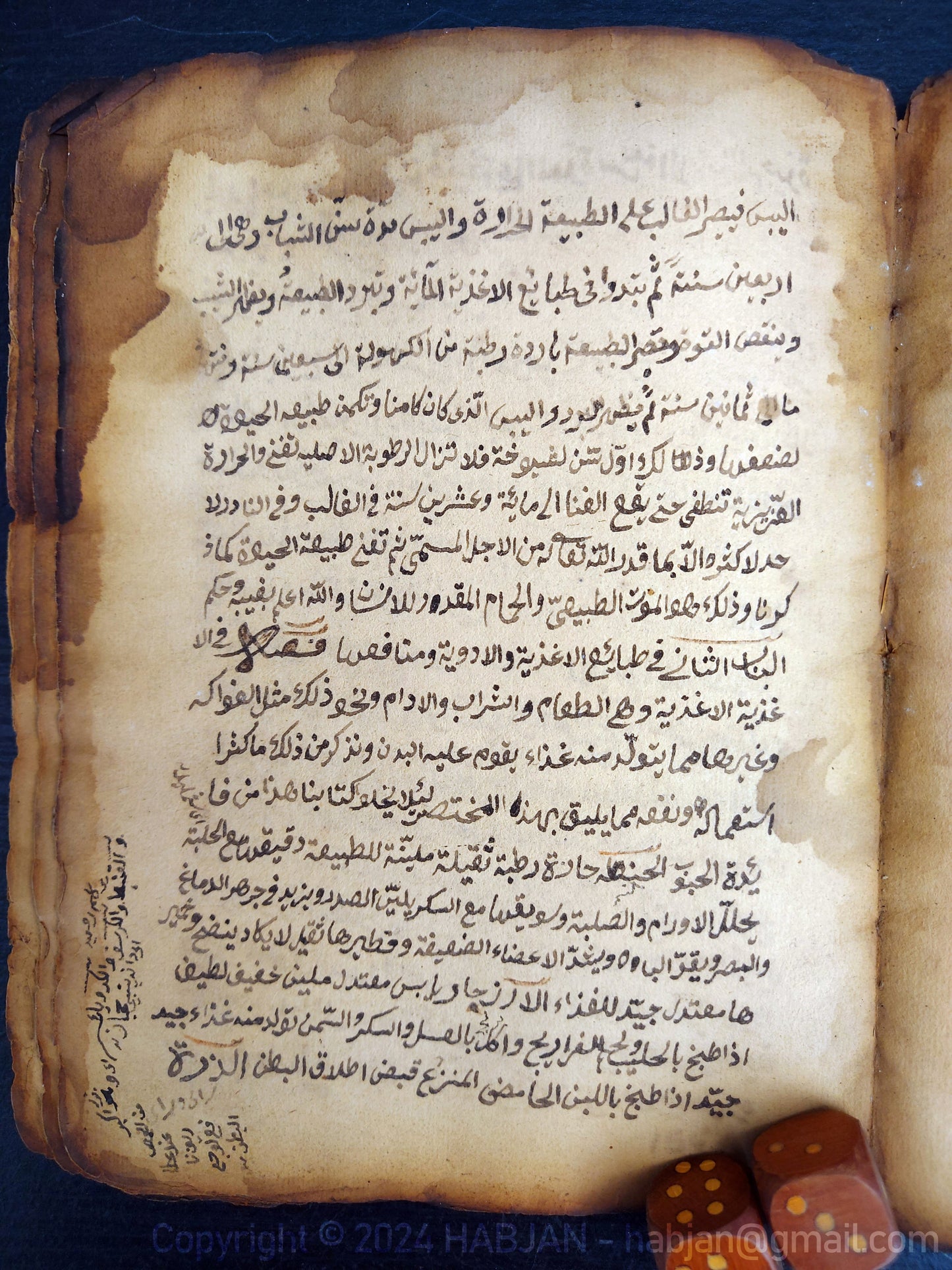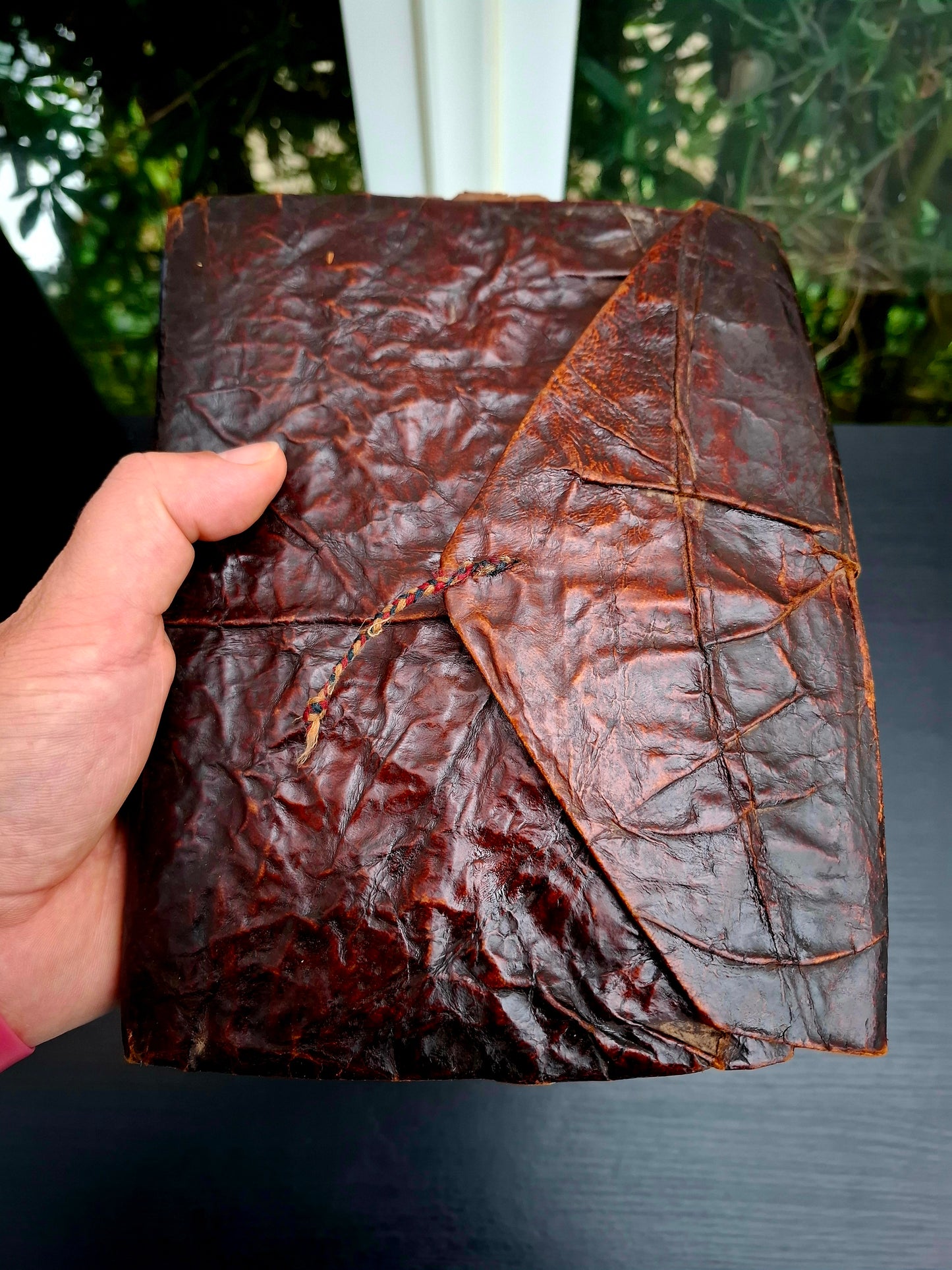1
/
of
36
Habjan's Rare Antiquarian Books and Manuscripts store
16th - 18th century Arabic Medical Manuscripts - Folk medicine, diagnose, treatments and cures for various conditions within a religious spiritual context
16th - 18th century Arabic Medical Manuscripts - Folk medicine, diagnose, treatments and cures for various conditions within a religious spiritual context
Regular price
£500.00 GBP
Regular price
Sale price
£500.00 GBP
Unit price
/
per
Import duties and taxes not included for buyers outside the UK.
Couldn't load pickup availability
Two rare sets of undated Arabic medical manuscripts (written somewhere between 16th and 18th century) with various notes in a hand made leather case. Both sets of manuscripts talks about folk medicine, diagnose, treatments and cures for various conditions within a religious spiritual context. All together there are 198 pages of manuscripts and various notes where most of the notes have writings on both sides. Author unknown.
One of the manuscripts is a detailed medical text, for example it's listing different types of diseases categorized by each organ in the body and providing treatments for them. It delves deeper into specifics, for instance, it classifies stomach diseases into four categories and elaborates on the conditions, the herbs used for treatment, and instructions on how to apply these remedies. The manuscripts also cover a wide range of medical topics, such as diagnosing conditions based on the characteristics of body sweat observing how thick, continuous and how fast sweat drops, it explains some conditions like common cold, or cough, or even death. There are discussions on hemorrhoids, kidney stones (along with their symptoms and treatments), and eye diseases like conjunctivitis and corneal opacity. Cough is another extensively covered condition, described in great detail, along with methods of treatment. The manuscripts also touch on more complex conditions like Cauda Equina, explaining its causes and treatment. Additionally, the manuscripts address pains related to the stomach, teeth, and heart, and even connect certain diseases to the planets in the solar system, suggesting a method of healing related to celestial bodies. Furthermore, the manuscripts contain a reference to urinary incontinence and its treatments and many more.
There's also a fascinating account involving the science of “Will,” attributed to King Solomon, son of King David. This practice is described as a method to heal someone possessed by a Jin, involving ritual purification, prayer, and specific recitations invoking Solomon’s wisdom.
In addition to the medical content, there are financial records, including a notable case where a man named Ismael left money to be distributed among orphans, with each family member’s portion specified, and instructions on how the funds must be handed over to the rightful heirs.
Share
